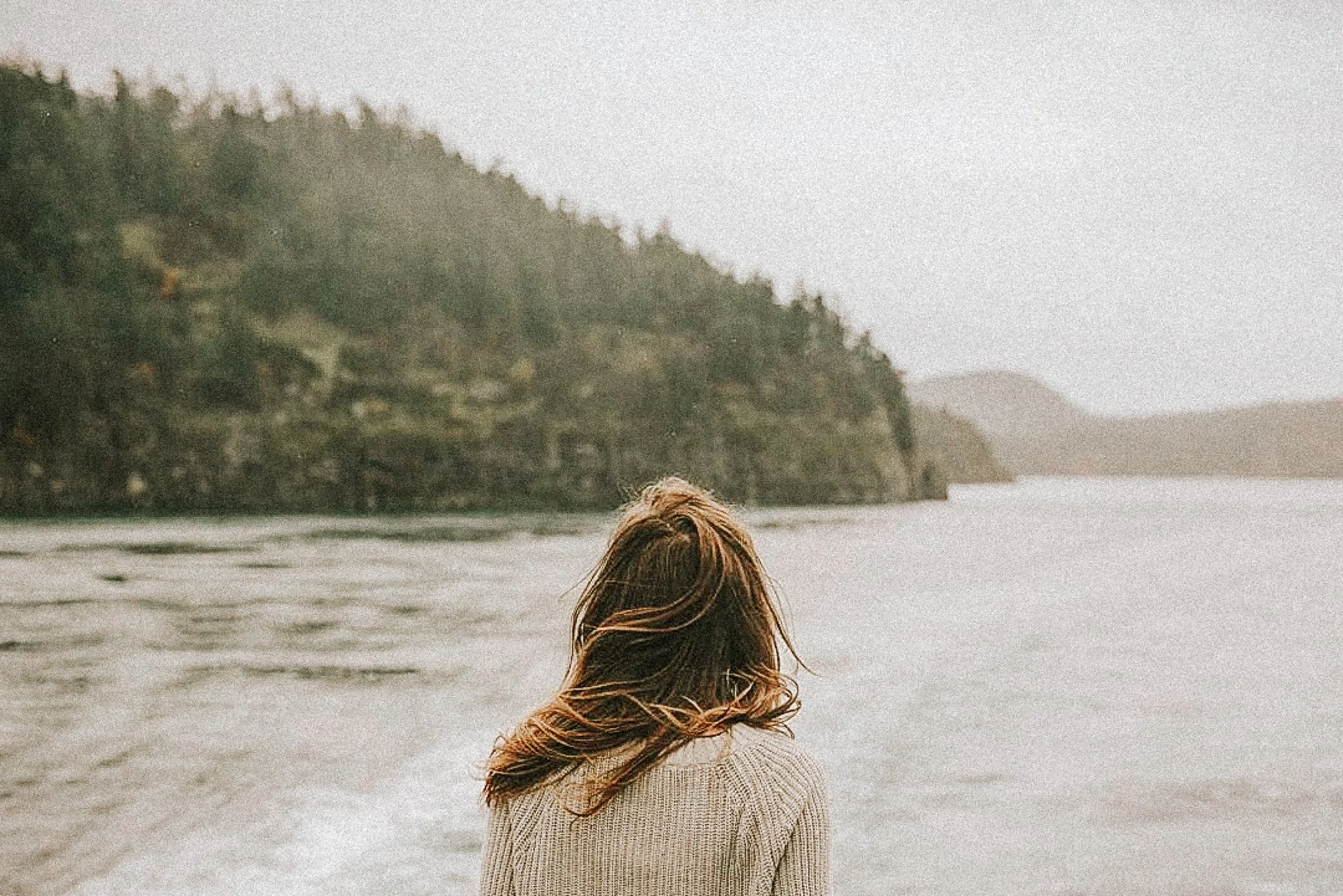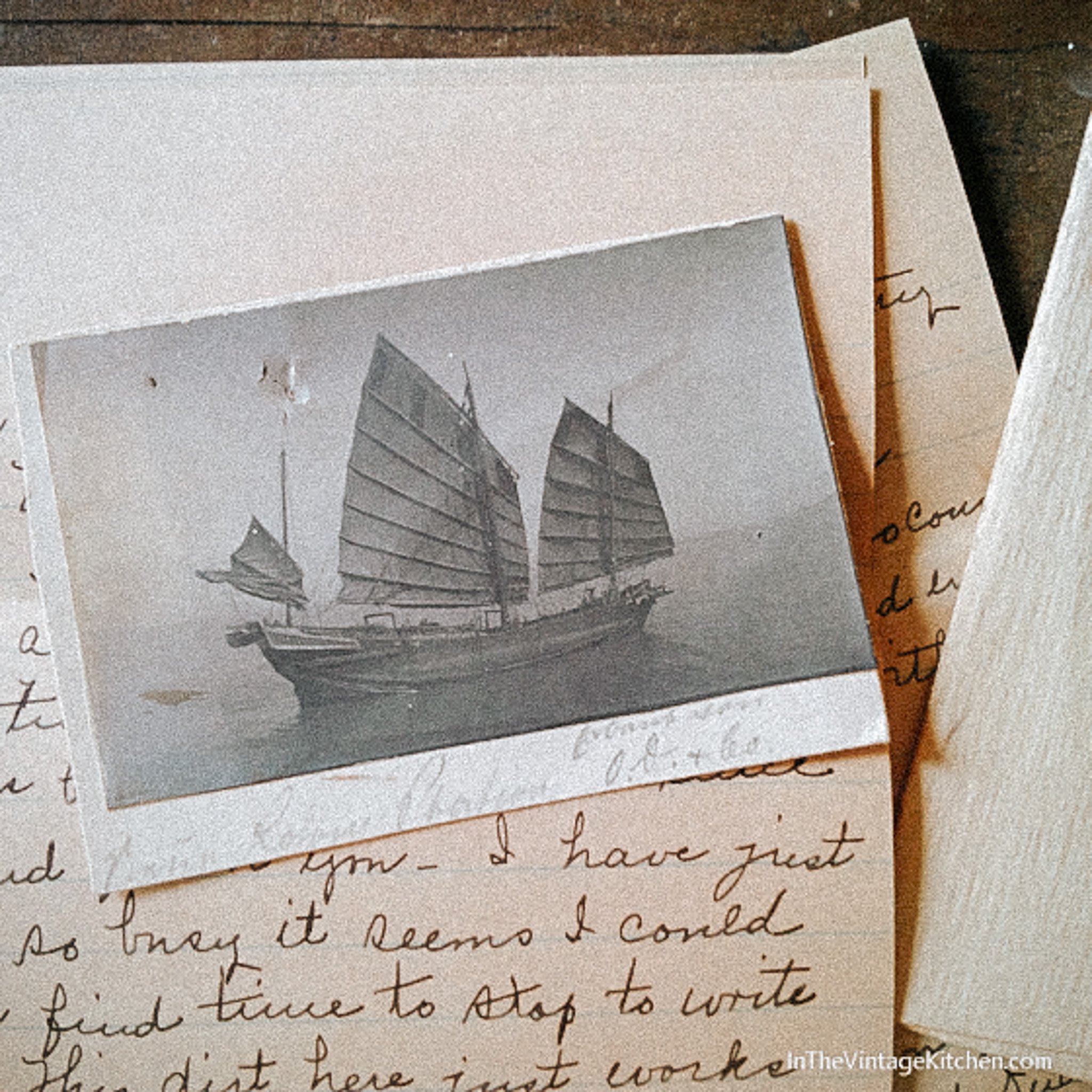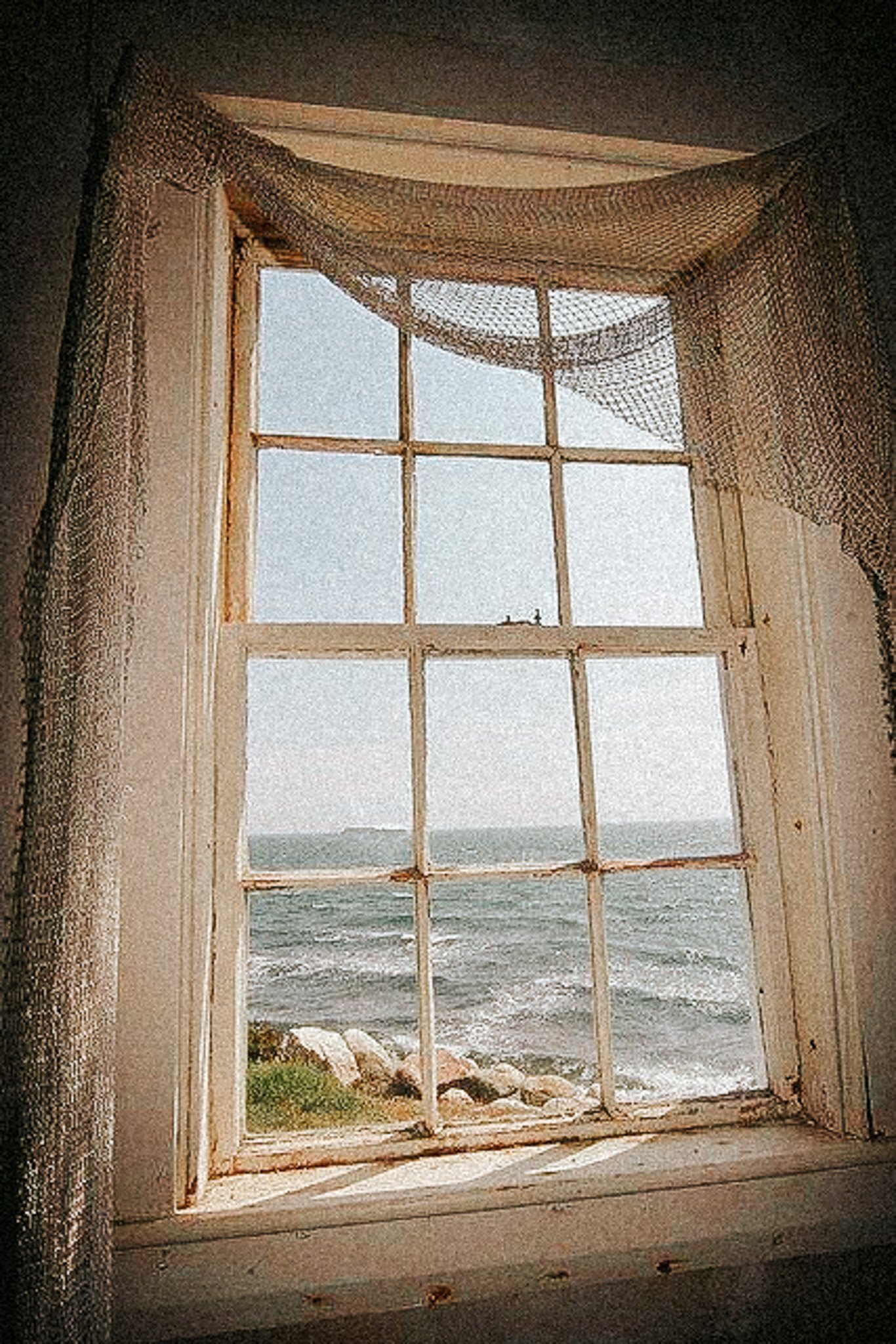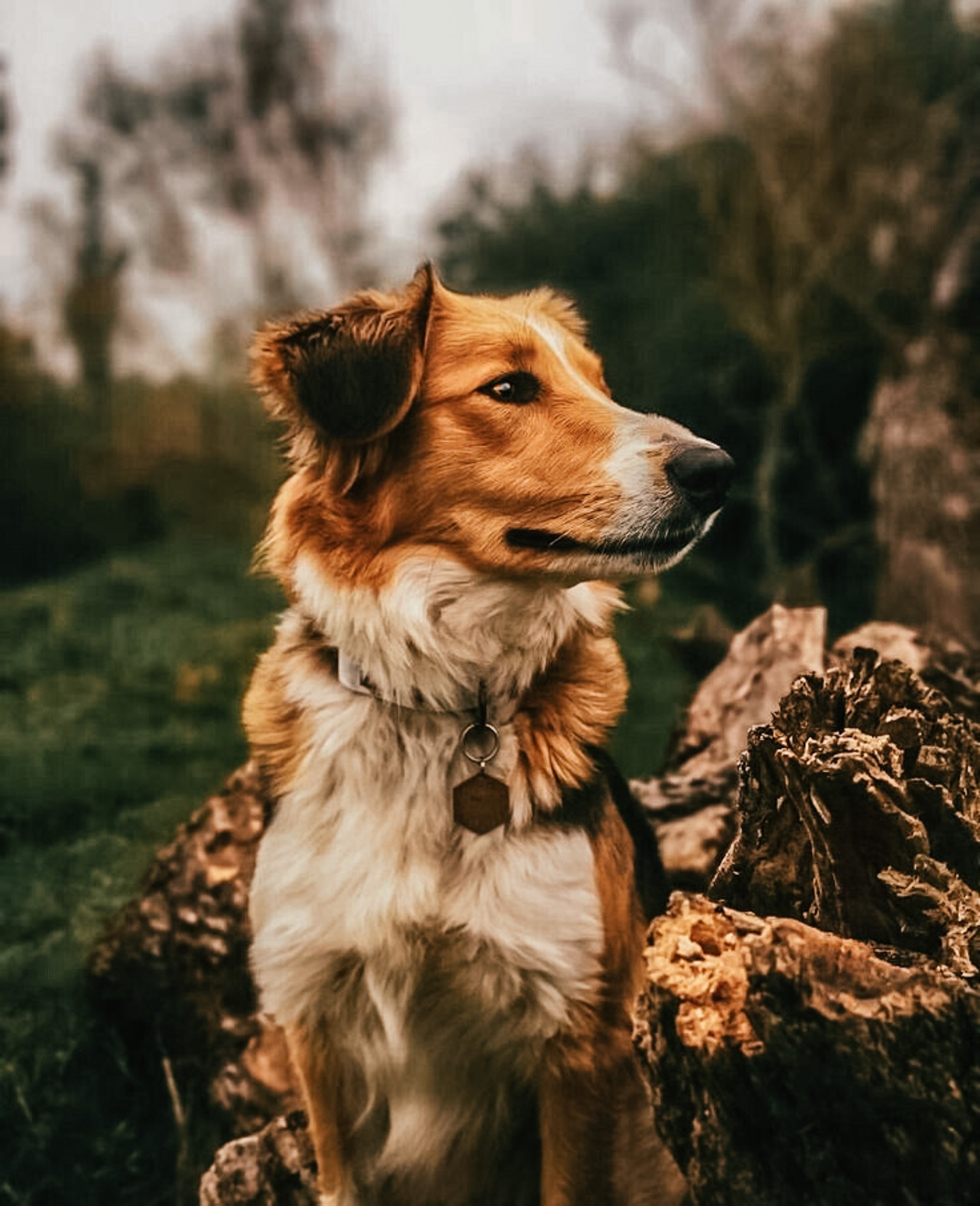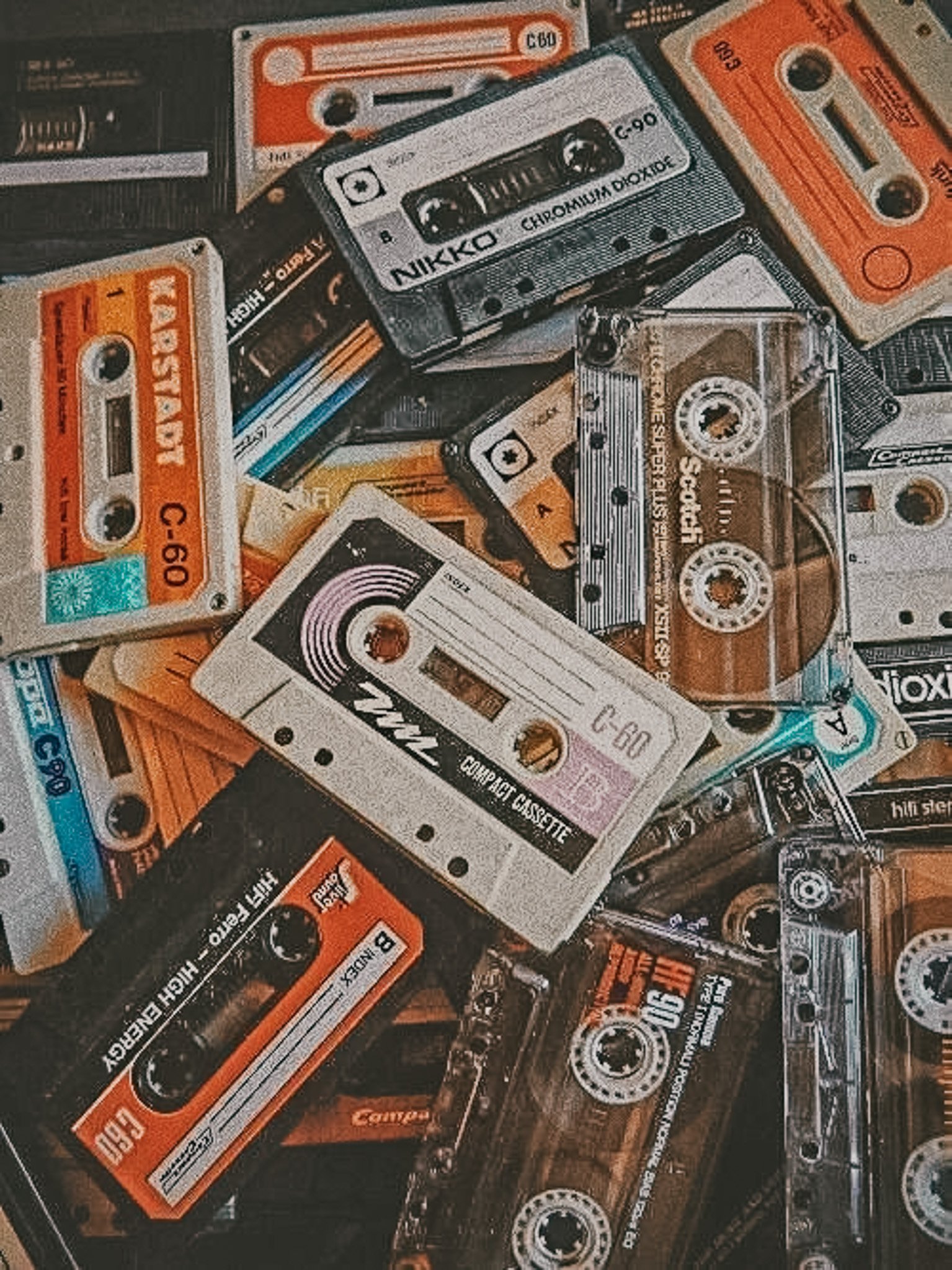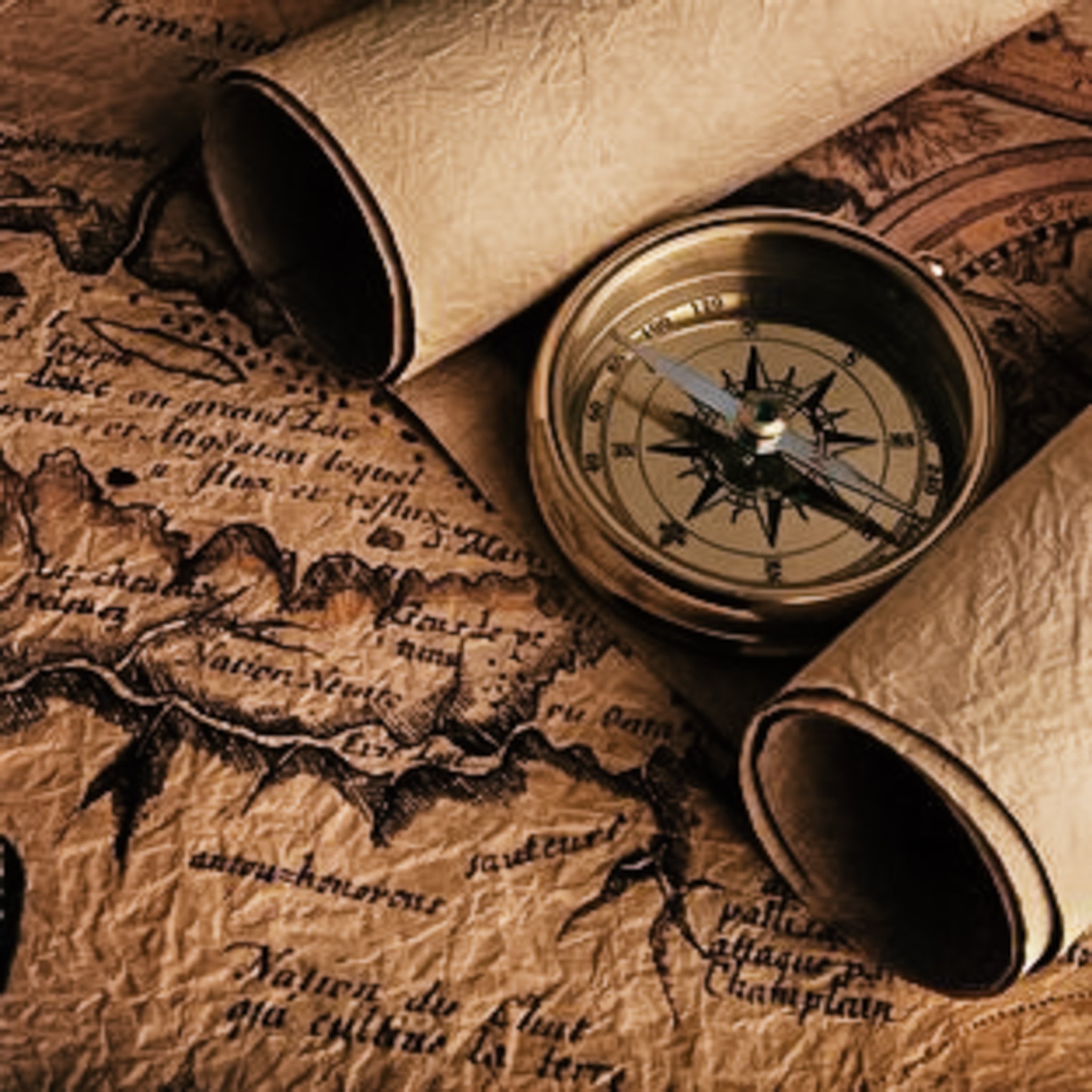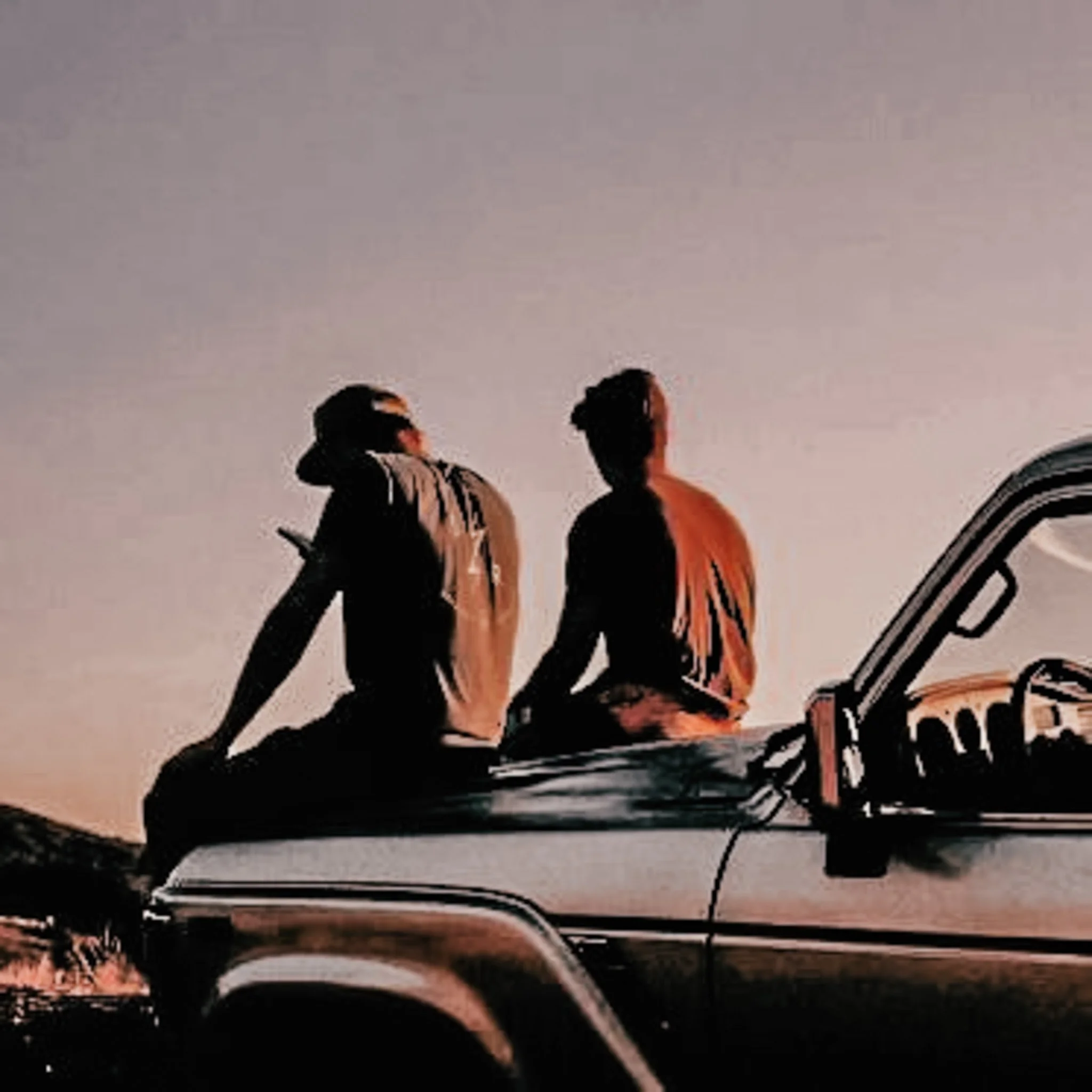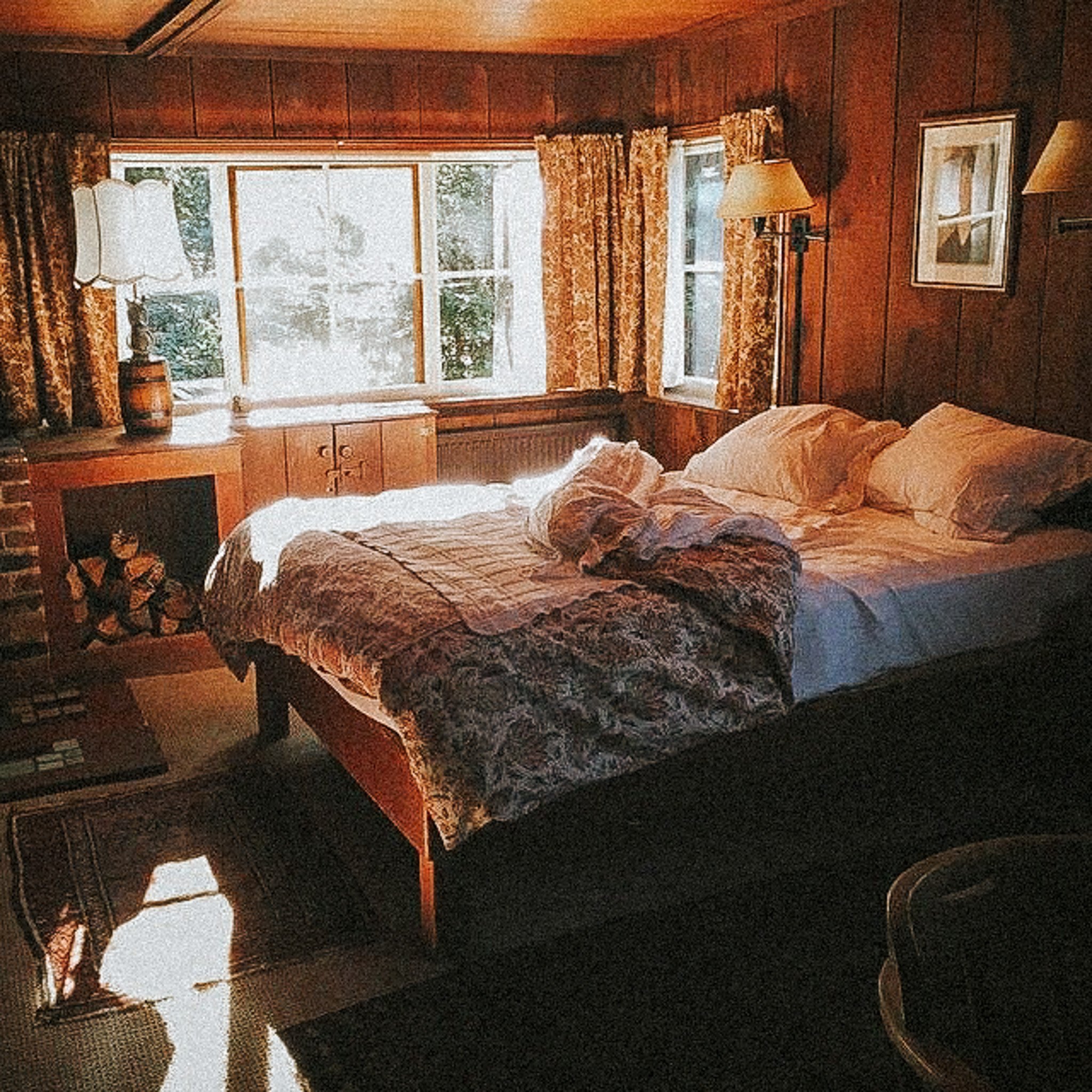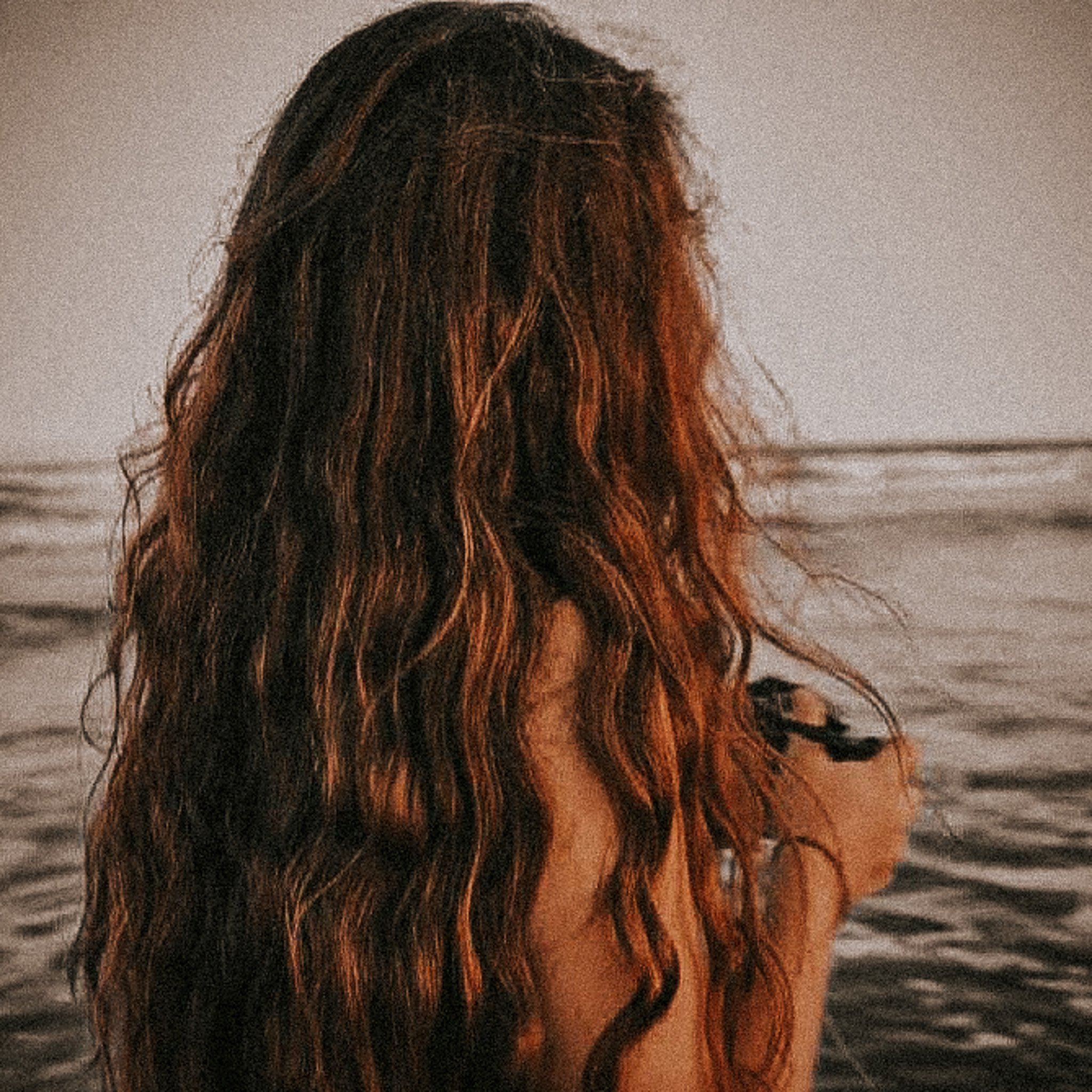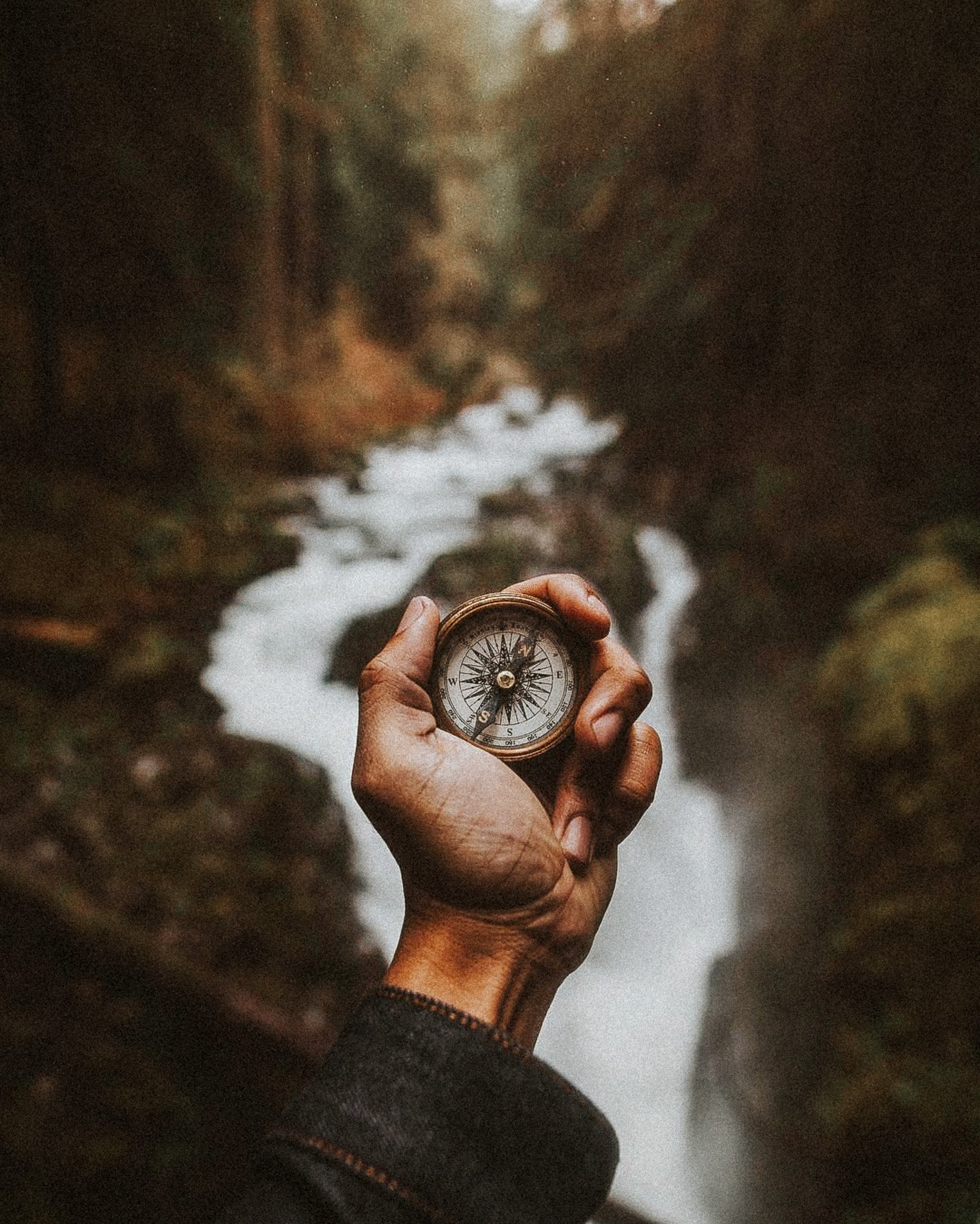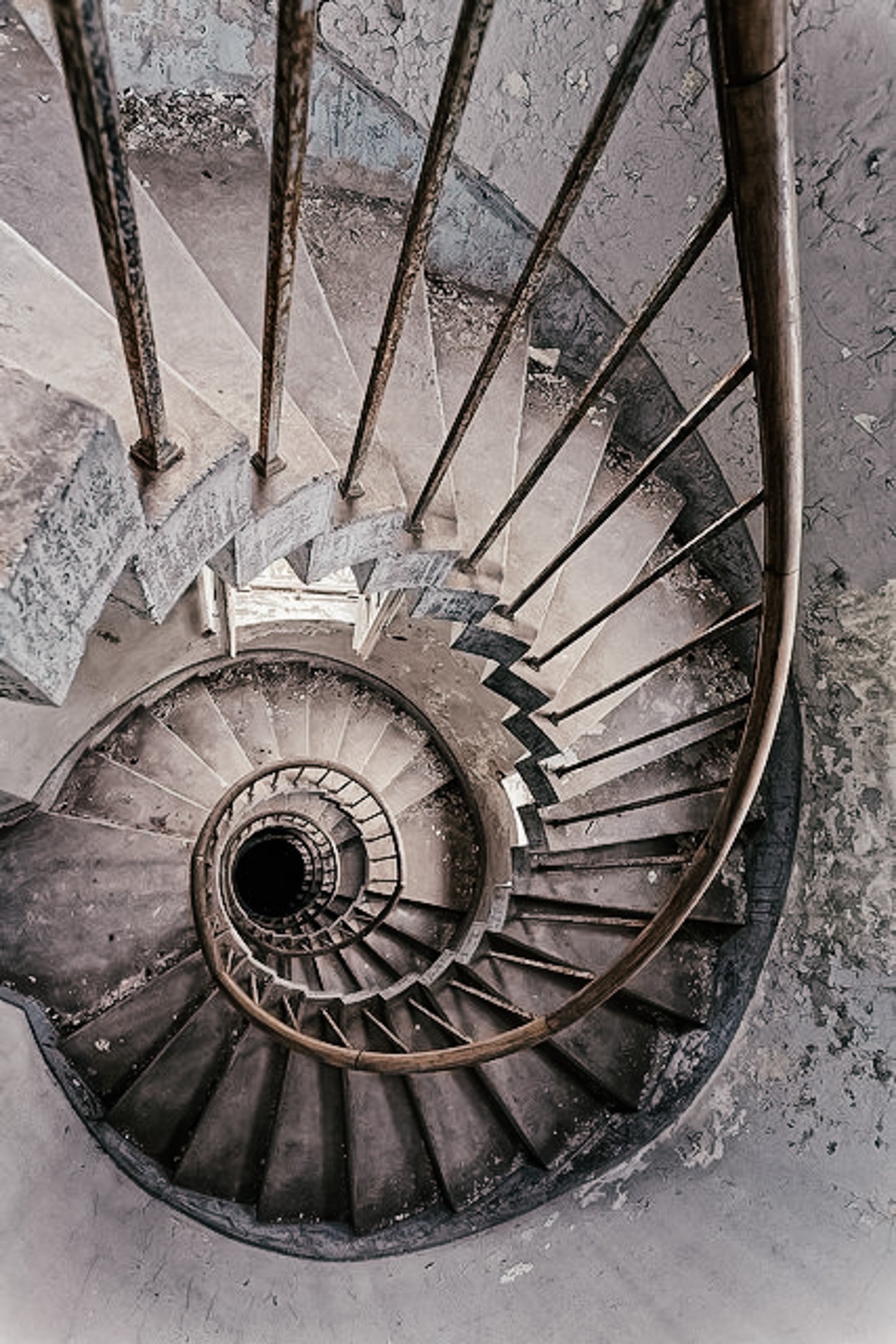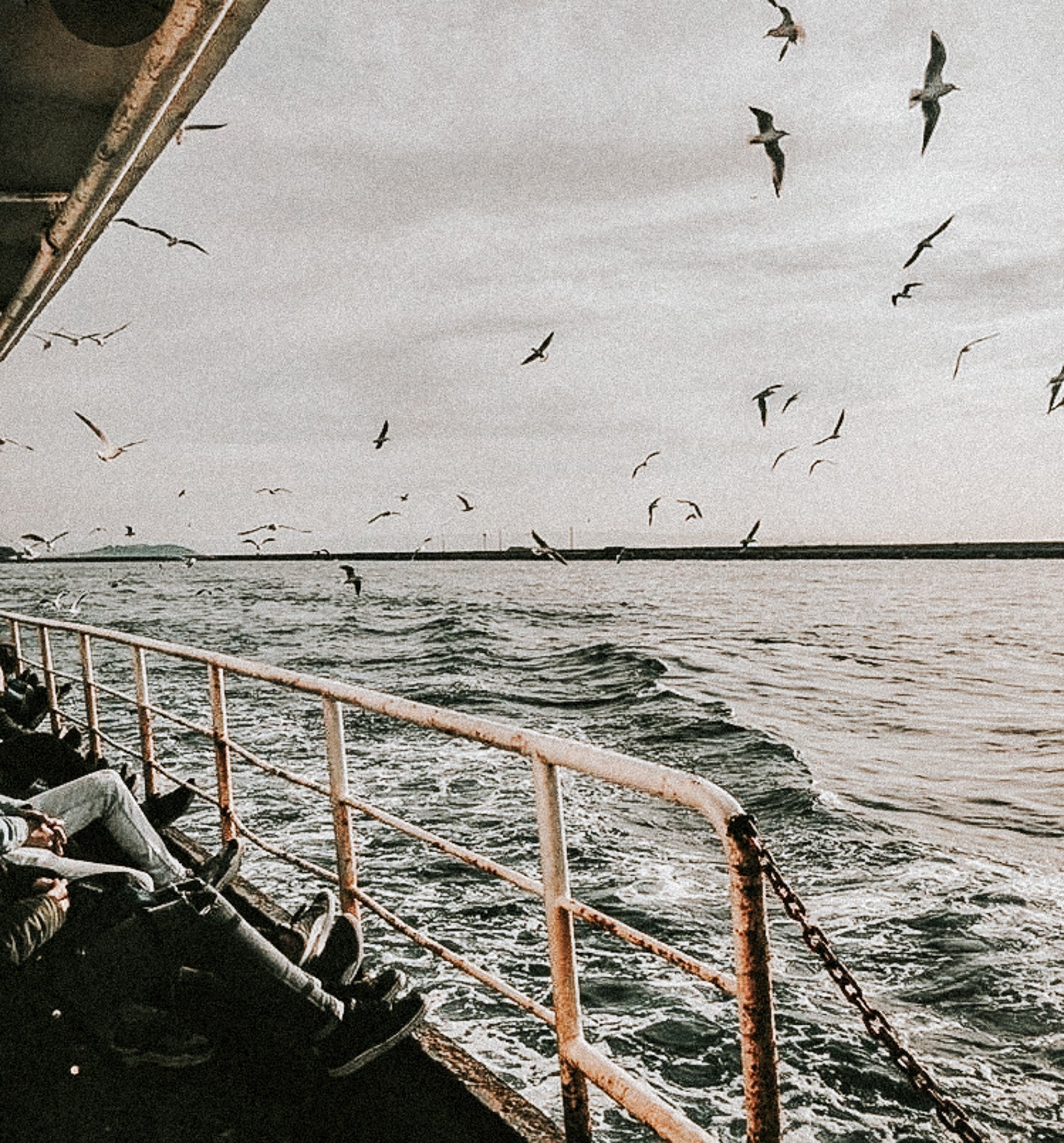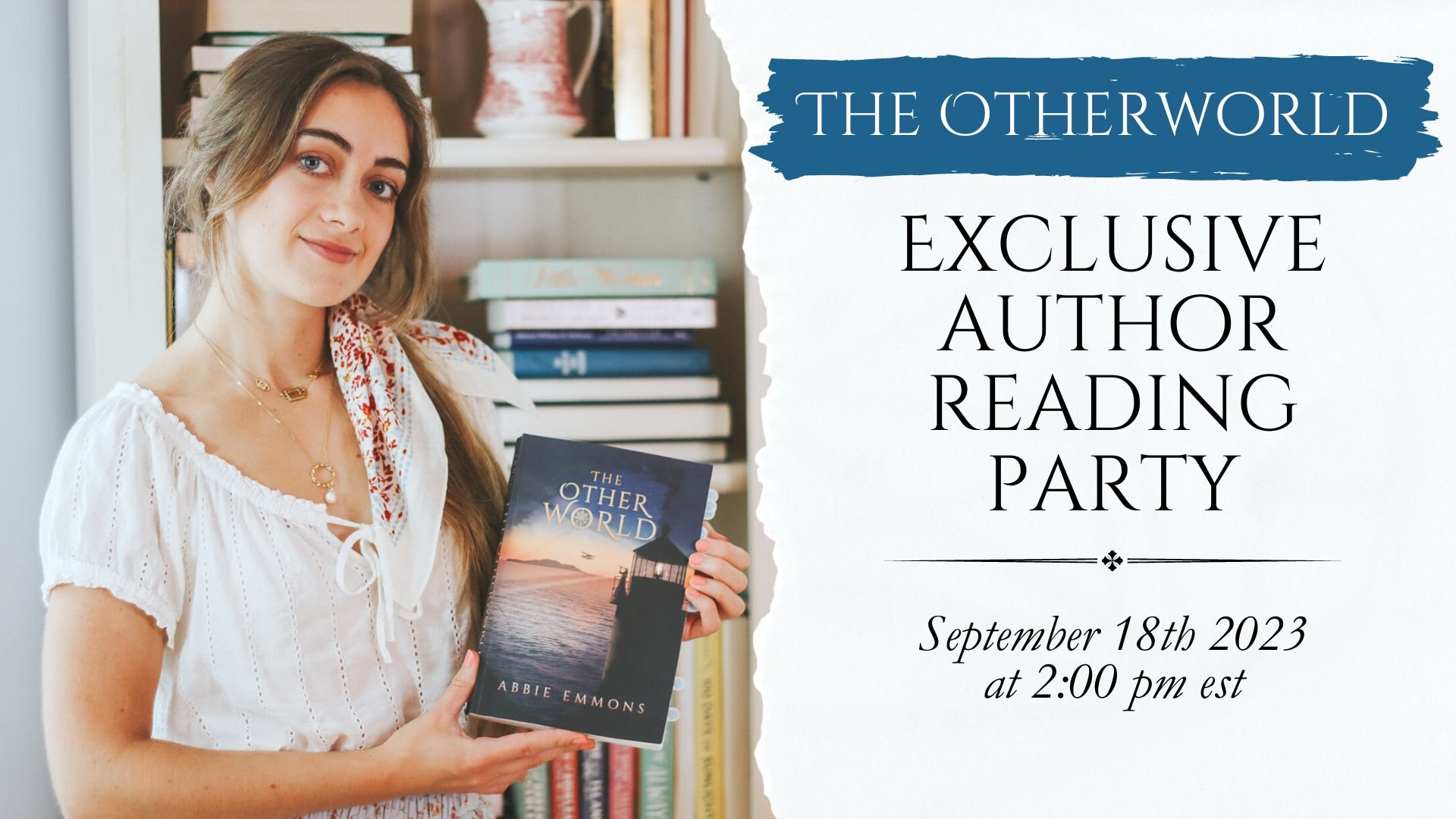
Welcome to the lighthouse
Thank you for preordering! Here you will find exclusive bonus content for The Otherworld.
The Otherworld Playlist
Explore the music that inspired The Otherworld, curated by the author for your listening enjoyment!
Join the author reading party
You are invited to an exclusive author reading livestream party with Abbie Emmons on September 18th at 2:00 p.m. EST! Tune in for a special live reading of the first chapter of The Otherworld, Q&A, and get an inside look at Abbie’s writing process.
Step into The Otherworld
The reading ambience video below has been specially crafted to immerse you in the story you’re about to dive into. Click play and start scrolling to read the first five chapters of The Otherworld.
THE FIRST 5 CHAPTERS OF
The Otherworld
start reading now
Prologue
My father always told me that there are two worlds.
Our world, and the Otherworld.
Our world is simple. It is the island. It is the lighthouse. It is the endless waves of ocean stretching in every direction. It is the soft, thick blanket of clouds rolling across the sky, carrying rain and sometimes snow.
The Otherworld is out there.
Beyond the edge of the ocean.
I wouldn’t have known it existed had I not asked my father when I was eight years old.
“What is out there, Papa?”
With a smile, he answered, “More ocean. Thousands of miles of it. Waves and waves into infinity.”
“Infinity,” I whispered, reaching my hand out as far as I could.
We were standing at the railing around the top of the lighthouse. I spread my fingers and watched infinity fill the spaces between them.
“And what’s that, Papa? That land way out there?”
Papa’s face went pale and quiet, like the breathless calm before a storm. His sharp eyes looked past the fog to the distant shapes of islands like ours.
“That is a whole other world,” he said, placing a weathered hand on my shoulder. “It’s where most people live.”
“Why don’t we live there?”
“Because we have our own world, little Orca.” His gaze floated across the silver-crested waves as they danced closer to our shore. “The other world is full of danger and darkness.”
“Like thunderstorms?”
Papa nodded. “Like thunderstorms. But not the thunderstorms you’ve seen. These thunderstorms are inside people. They are people. They’re dangerous… mostly because you can’t see the storms coming. People can change from light to dark in a moment, without warning.”
I didn’t understand what he meant. But I thought about his words.
I thought about the other world.
The Otherworld.
Papa knew it well. He’d lived there for a long time before he came to the lighthouse. But I couldn’t remember ever seeing the Otherworld, and I longed to know more about it. Papa’s natural history books talked of rainforests sweet with nectar and fizzing with tropical birdsong. Deserts as wide and lonely as the open seas. Mountains so tall they were never without snow.
Earth wasn’t the problem, Papa said. It was the people who caused the problems.
The thunderstorm people.
But even thunderstorms have another side to them—a terrifying sort of beauty, when rods of white lightning split the sky into pieces and flash on the swells of the black ocean below. I used to sit by the window and watch such storms with Papa at my side. When the thunder roared and shook the sea around us, I would snuggle close to Papa, and he would tuck me into the side of his overcoat. He smelled of rain and salt and hard work. Our dog, Lucius, didn’t care for stormy nights. He would lie across Papa’s feet and whine until the thunder ceased.
Our island is small enough to circle in a day’s light on foot, a coastline of hard gray beaches and jagged black rocks slick with sea mist and vibrant green moss. If you walk straight across the island instead of around it, you come into a thick gathering of trees—stout junipers, sticky hemlocks, and paper birches—thousands of branches reaching up to the sky and blanketing the mossy forest floor in golden leaves come autumn.
But of all the sights and wonders our world has to offer, none is more familiar to me than the lighthouse. Her whitewashed tower stands proudly on the island’s northern tip, crowned by a glass-walled lantern room, sea mist worshipping at her feet as she sends light across the water to infinity.
At times, I have glimpsed lights from the Otherworld, too. Little pinpricks of light, as if some stars had fallen out of the night sky and landed in the water—twinkling for a moment on the horizon before the waves swallowed them up.
What is it like out there? Will I ever know?
When Papa spoke of the thunderstorm people in the Otherworld, he emphasized how much we don’t belong there. How much I don’t belong there.
“You’re a very special, kind soul, Orca,” he’d say, looking deep into my eyes from across the dinner table. “People aren’t kind in the other world.”
“None of them?”
“Not many of them,” Papa said. “You’re like… a delicate and unique branch of coral. You belong far away from the violent crashes of the waves on the rocks. You see, corals can’t survive in the tide. That’s why they flourish in a reef, on the ocean floor. Out of harm’s way.”
I understood what he was saying:
I wasn’t strong enough for the Otherworld.
According to Papa, it would smash me and destroy me.
Year after year, I helped Papa keep the light. Occasionally, boats and planes would cross paths with us, always miles out of reach—traveling in too many directions to determine where they came from or where they were going. I amused myself by making up stories about the people in those planes and boats. Where they might be traveling to, and what kinds of lives they led.
Every three months, a coast guard boat would come to our island and moor off the east side. Two men would carry out a routine inspection to ensure the lighthouse was up to standard. Our only other visitor was the supply man, who came twice a year to deliver us essentials we couldn’t grow or build ourselves. Knives, new flint, ointment, fresh rope, yellow wax candles, sacks of flour and rice, and fat bricks of soap. I loved to examine the new supplies piled up in our living room, studying them like treasures from the bottom of the sea. My only taste of the Otherworld.
When the supply man left, I would watch his boat through Papa’s spyglass, squinting hopelessly through the eyepiece until the small craft vanished into the distance.
Season after season, year after year, the Otherworld remained a mystery. The only evidence that it existed at all lay in the ropes and the wax and the knives.
And the pinpricks of light.
And the look in Papa’s eyes when he remembered it.

The Lighthouse
PART ONE
June 14, 1997
Strange Treasures
Orca
Every year on my birthday, Papa carves a new driftwood orca whale and leaves it on my nightstand. It’s the first thing I see when I open my eyes on the fourteenth day of June. I know exactly which piece of driftwood Papa used for this one. He’s made it a thing of beauty—sculpting away the gnarls and knobs of the branch to release new life from its soul: an orca whale breaching high from a wave of driftwood, its pectoral fins like wings in flight.
I turn the carving over in my hands, marveling at Papa’s talent before I place it atop my dresser with the others. There are big ones, little ones, males with tall dorsal fins, and females swimming beside their babies. Today, I have a pod of eighteen orcas porpoising across my dresser.
Eighteen.
I’ve waited an eternity for this day. To finally step over the threshold of childhood and embark on a new chapter of my life. In the Otherworld, eighteen means something. It means you are no longer a little girl in need of protection. It means you are an adult, capable of making your own decisions.
It means anything is possible.
I twirl over to the window and throw it open. Briny, sweet sea mist billows inside, fluttering the papers pinned to my walls—ocean charts and illustrations from marine biology books. Seashell garlands sway and clink jovially in the breath of a new day. I lean my elbows on the windowsill and peer across the water to the mist-shrouded islands in the distance.
So many adventures, waiting to be had.
So many mysteries, waiting to be discovered.
So much more, just beyond my reach.
Today is the beginning of it all.
I wrap myself in my crocheted shawl and head into the living room. Lucius lifts his scruffy head upon my entrance, romping over for a good-morning hug. I kneel on the floor and loop my arms around his neck, planting a kiss on top of his head. He is a sandy, salty mess of a dog—another outcast from the Otherworld. Papa found him at a harbor five years ago, whimpering in a box marked “free to a good home.” He was the only puppy in the box, and there was no telling if he’d had any brothers and sisters taken before him. The fact remained: Lucius was all alone. Perhaps they didn’t like his mismatched eyes—one was brown and one was blue—but I always thought it made him more beautiful. Papa didn’t have the heart to leave him behind, so he tucked him into his raincoat and brought him to the lighthouse. He’s just the right sort of dog to have on the island—a mix between “some kinda collie and some kinda shepherd,” according to Papa’s analysis. I think he may be part bloodhound because he can smell a good meal cooking from half a mile away.
“Today is the day, Lucius,” I whisper conspiratorially into one of his floppy brown ears. “I’m going to ask Papa to take me to the Otherworld. He can have no possible reason to object now that I’m eighteen—”
“Orca?” Papa’s warm, mahogany voice calls from the kitchen. “Is that you?”
I pat Lucius’s head as I climb to my feet. “Come on, boy. Let’s go.”
Papa’s eyes light up when I step into the kitchen. “Happy birthday, my sweet girl.”
I dash across the room and pull him into a hug. “The carving is beautiful. Thank you, Papa.”
He murmurs a humble laugh against the crown of my head. “I’m glad you like it, Orca.”
“I love it.”
Reaching over the sink, I push open the window and invite the morning breeze inside. Beyond the window, a knoll of soft young grass slopes down to the land’s end where massive, craggy rocks meet the sea. My gaze follows a pathway of golden sunlight glittering on the high tide like crushed diamonds. Waves crash, and seagulls cry.
Our world carries on, ever the same.
But today is different.
The aroma of chamomile and lavender fills the kitchen as Papa strains freshly steeped tea into two ceramic mugs for us. A sickle of morning light crests the side of his face, contrasting with the scruffy, salt-and-pepper beard that lines his jaw. Steam curls around his weathered hands as he pours the tea, his gray eyes solemn and thoughtful.
“Everything feels so much more alive now that I’m eighteen,” I begin, sitting in my usual spot at the table and settling my chin on my fist. “I almost feel like a new person. Older. Wiser.”
“Mm,” Papa murmurs, taking a seat at the other end of the table. “I’m glad to hear it…” But his voice could no more be described as glad than a rainy day could be considered cheerful.
“Papa? Is everything all right?”
His somber eyes meet mine. “I hope so, Orca.”
“What do you mean?”
“Well, it’s just… I received a phone call yesterday.”
“A phone call?”
The satellite phone is our only connection to the Otherworld, and I’ve never used it myself. Papa has always told me that the phone is not a plaything and should be reserved for emergencies if we need to reach the coast guard.
Or, in this case, when the coast guard needs to reach us.
“They’ve summoned me to the mainland,” Papa says quickly, as if the words sting and he needs to get them out in a hurry.
“The mainland,” I echo, a thrill of hope awakening in my chest.
The Otherworld.
“Why?”
Papa draws a deep breath and stares into his mug of tea. “It seems there are some changes to be made around here.”
“What sort of changes?”
“Modernization,” Papa says with a sigh. “All the lighthouses across the country have been fully automated for years now. Ours is the only one that hasn’t been converted to the new system.”
“What’s the new system?”
“One without lightkeepers.”
I frown. “But how is that possible?”
“Technology has changed a great deal since the last light was installed in the sixties. The new lanterns they make now can be controlled remotely by the coast guard. There’s no longer any need for a middleman.”
“Does that mean we’ll lose our place here?”
Papa shakes his head. “I’ve been told we can stay on. The grounds and tower will still need upkeep, which we will continue to manage…” A weak grin tugs at the corner of his mouth. “Don’t worry, sweet girl. It won’t make much of a difference to us. If anything, it will give me more free time to spend with you.”
I shake my head. “I’m not worried, Papa. On the contrary, it sounds exciting—modernization here at the lighthouse. And what a lucky coincidence that you just happen to be summoned to the mainland on the very day I turn eighteen!”
Papa regards me with a curious frown. “A lucky coincidence?”
“Yes! Because it’s a special birthday, isn’t it? I mean, in the Otherworld, eighteen is the beginning of adulthood. It means I’m older and wiser and…” I clasp my hands together in my lap, my chin tipped up with confidence. “Well, the truth is, I was planning to ask you to take me to the Otherworld. For my birthday. But I was worried it might be a bother. And now—” I laugh, a giddy rush of excitement flurrying through me. “Well, now I don’t have to worry about that at all because you need to go to the Otherworld anyway, and—”
“Orca.” Papa’s voice is quiet, but firm enough to stop me mid-sentence. The sorrow in his eyes is outmatched only by his unwavering resolve. “You won’t be coming with me to the mainland. Not this time.”
My heart sinks. “Why not?”
“Because I need you to stay here, to keep the light and look after things. And take care of Lucius, of course.”
At the sound of his name, Lucius trots over and pushes his head into Papa’s lap.
“Lucius could come, too,” I offer, though I only half-expect him to take this suggestion seriously. I lean over the edge of the table to say, “Would you like to see the Otherworld, Lucius? I know I would—”
“No, Orca.” Papa gives me a stern look from across the table. “I need you to stay here. I trust you to take care of things; it’s no small task. Do you think you can handle it?”
“Of course I can handle it, Papa. But I wouldn’t be any bother if I did come with you. And I’m sure the lighthouse would be fine for a day without us.”
“I’ll be gone for more than a day,” Papa returns decidedly, those first three words burning me like a bee sting.
I’ll be gone.
“How long do you suppose it will take?”
Papa sighs, rubbing his beard. “I hope no more than three days.”
“Three days?”
“These government matters can take time. I don’t like it any more than you do, Orca. But I promise I will return to you as soon as possible.”
My gaze drifts down to the cracks in the old kitchen table. I know every line and scratch, exactly how it got there. This one from the bread knife I dropped a few weeks ago. This one from the year I learned to write the alphabet and accidentally scrawled past the edge of the page. This one from Lucius’s claws, attempting to steal a cooling pie before I wrestled him to the floor.
Eighteen years I have sat at this kitchen table and looked across at Papa’s sweet, familiar face.
Six thousand, five hundred and seventy days.
Perhaps I was foolish to hope, to wait, to expect that one of those days would be the day.
The day Papa told me I was old enough, strong enough, wise enough to go to the Otherworld with him.
I swallow the pang of disappointment knotted in my throat and manage to ask, “When are you leaving?”
“A boat will come for me first thing in the morning,” Papa says. “I hate to leave you like this, my sweet girl. But you’ll be strong for me, won’t you?”
I nod, proving it now—if only to myself—as I blink back the stinging tears. “Of course, Papa.”
* * *
“It’s not fair,” I grumble, trudging down the flagstone path to the greenhouse, my harvesting basket slung over my shoulders and Lucius trotting at my side. “My whole life, I’ve been asking Papa to take me. Now, the perfect opportunity arrives and what do you know? I can’t go with him. Even you have seen more of the Otherworld than I have, Lucius.”
He sneezes with an air of smugness.
“Well, you don’t have to rub my nose in it.”
I open the door to the greenhouse and step inside, Lucius close at my heels. A riot of color surrounds me—greens and reds and yellows and purples. Morning glories ribbon up the support poles, pressing their faces toward the ceiling in search of the sun. Beds of romaine lettuce grow in different stages of readiness. Feathery carrot tops drape from deeper beds of rich soil, and heavy vines of tomatoes cling to stakes, covered with small fruit. A long trough of strawberry plants follows the wall at my eye level—red jewels dangling from tender green leaves. Sugar snap peas tangle playfully around everything in their reach, and the pepper plants sit stoically, watching their wild fun. Butterflies dance to and fro, fluttering from blossom to blossom in darting glimpses of yellow and orange and blue and white.
My favorite part of the greenhouse is the very center, where a circular opening in the roof allows rainwater to filter down and collect in a basin. Colorful orchids hang from the ceiling, their roots twisted acrobatically around the opening. Papa designed it that way to give the orchids a moist habitat while collecting the rain in a convenient place for the rest of the plants. I whisper hello to the orchids, and they reach out as if to shake hands, their painted faces smiling with shy elegance.
I lift a clay pot from the side of the basin and fill it with rainwater, tucking it against my side as I circle back through the greenhouse to water the plants. Lucius sniffs the ground for fallen berries, occasionally sneezing on the dirt.
Tomorrow, Papa leaves for the Otherworld.
And I stay behind.
All these years, leaning as far as I can over the lantern room railing with Papa’s spyglass. All these years, squinting through the fog into infinity, hoping to glimpse just a fragment of the Otherworld. All these years, poring over Papa’s maps and learning the names of our neighboring islands: San Juan, Lopez, Whidbey…
Yet Papa won’t take me with him.
“What have I ever done, Lucius?” I say, returning to the basin to scoop up more water.
Lucius glances up from the green bean beds across the row. His snout is dusty-brown from sniffing the earth, and his ears are perked, waiting for a command or food—I can tell he hopes for the latter.
“What have I done to make Papa think I’m so weak? So… incapable?” I sigh, watering the tomatoes and the peppers. “What have I done to make him mistrust me?”
Lucius whimpers and lies down. Very helpful.
I shrug my harvesting basket off my shoulders and open the woven lid. I start by twisting the biggest heads of romaine from their beds and shaking off any excess dirt. Next, I move on to the tomatoes—plucking off only the roundest, reddest fruits and gently laying them in my basket.
“Maybe it’s not just me,” I murmur, running my fingertips over the long row of strawberries. “Maybe it’s because of Mama. Maybe he blames the Otherworld… for what happened.”
I’ve lost track of how many times I have pulled back the curtains of my past memories, searching for a glimpse of Mama—a trace of a voice, a smell, a touch. But each time, I find nothing. I was only two years old when she died, too young to remember anything about her. Trying to summon a memory feels like pushing my arms far down into sand, digging for something that isn’t there.
It wouldn’t be half so disheartening if Papa would tell me about her—if he would share some of his memories with me. But he never speaks of Mama, and I learned many years ago to keep the subject off my lips. Every once in a while, I see the light in his eyes change from present to past, and I wonder if he’s thinking of her. I’ve never seen a picture of her, so I don’t even know if we look anything alike. But it’s impossible to mistake the sadness in Papa’s eyes when he looks at me sometimes, and I know that I remind him of Mama in those moments.
Lucius whines at my feet, waiting for a strawberry. I carefully pluck the sweet rubies off the plant, collecting them in a separate, smaller woven basket so they won’t be crushed among the other vegetables.
“Or,” I add, “maybe I just haven’t done anything to prove that I’m capable.”
Lucius watches me roll a berry between my fingers.
“What do you think?”
He paws my leg and shimmies an inch closer.
I pop the berry in my mouth.
He looks so devastated, I can’t help picking another plump strawberry and tossing it to him. He catches it in midair and immediately wants another.
“No, we can’t eat them all here.” I turn back to the trough and continue harvesting. “Anyway, back to what I was saying. Maybe Papa would let me go to the Otherworld if he saw that I’m much stronger than he realizes. Maybe I can find a way to prove it to him… Any ideas?”
Lucius tilts his head as if thoughtfully considering the question.
“I know what you’re thinking,” I say, lowering my voice to a doleful doglike grumble. “‘Orca, you’ve complained to me about the same thing over and over again. You just can’t stop talking about the Otherworld! I’m tired of hearing you go on and on about it.’” I sigh, popping another strawberry into my mouth. “I know, Lucius. And I’m sorry to dump all this on you… but you’re my only friend.”
I lower into a crouch, cupping his dusty, speckled face in my hands. He stares at me with those beautiful mismatched eyes, as if he can read my thoughts.
“I wish I could talk to Papa about this. But he doesn’t understand… and I don’t want to upset him. He just doesn’t know what it’s like. He’s had his adventures; he’s lived in the Otherworld. For so many years, I’ve looked out over the sea at night and watched those lights from the Otherworld and wondered what it’s like out there. I’ve wondered what my life might have been…” My throat tightens as the ache of tears chokes my voice. “It’s a kind of grief, Lucius. I can’t describe it, but… it’s like mourning something you never had. Something you could’ve had. If only things were different.”
Unbidden tears begin to fall, spilling from my eyes. Lucius dips his head down and licks them off my cheeks, startling a laugh out of me. I slide my arms around his shaggy neck and clutch fistfuls of his fur.
“Oh, Lucius. You always know how to make me feel better.”
* * *
By midafternoon, the sun tucks herself behind a blanket of clouds and leaves the rest of the day smudged in shades of gray. While Papa goes fishing at the cove, I sneak off to walk the beach and collect shells, my linen pants rolled up to my knees and Lucius tromping at my side. He loves to splash through the surf and bark at seagulls, making them scatter.
The tide is going out, leaving behind all sorts of new treasures. Thanks to Papa’s books and charts, I can identify most of the shells I find: silky white scallops, gnarled gray oysters, ribbed brown Astarte, and one huge empty Macoma that opens up like a pair of butterfly wings.
Then, lodged between rocks in a tide pool, I spot something unusual: a thin bronze chain coiled around a fat strip of kelp. I reach down, sifting through a tangle of seaweed, and pull it out.
It’s a compass, small and finely crafted, strung on a chain and dripping with saltwater.
Where did it come from?
I look to the horizon, squinting to see if there’s anything else unusual in the receding tide. But there are only gray waves upon more gray waves. My gaze slides back to the beach, where Lucius hops over driftwood, barking happily at the gulls.
That’s when I spot something ahead washed up on the sand. From here, it is nothing more than a black lump that the tide is beginning to release from her frothy fingertips.
A dead seabird, no doubt.
“Lucius, come!” I holler, gripping my handful of shells and running down the beach toward him.
Lucius has a habit of putting nasty things in his mouth. He also has a habit of defiantly running away from me when he thinks I have a mind to deprive him of fun. He looks back at me with a crazed spark of adventure in his eyes and bolts down the beach for the dead bird.
“Lucius, come!”
I sprint after him as fast as I can, splashing through the shallow water and dodging branches of driftwood. As I draw closer, I see it’s not a dead seabird.
Lucius trots to a halt and sticks his nose in the black lump, sniffing and sneezing ferociously.
“What is it?” I say, slowing to a stop.
It looks like a sack of some kind—battered and black, strangled by a long string of kelp. Zippers and buckles are stitched into the bag, and two long straps hang off one side, reminding me of my harvesting basket. Perhaps it’s designed to be worn on the back?
I peel the kelp off the sack and turn it over in my hands, undoing one of the buckles and pulling the zipper open. To my surprise, the interior is completely dry. Feeling around, I find a flashlight, a clear bag with fishing lines and hooks, a tiny box of matches, and a fold-out knife.
Then, without warning, the sack begins to vibrate.
“Holy mackerel!” I gasp, dropping it as I jump back.
MMM-MMM-MMM, hums the sack.
“What on earth?” I whisper, creeping a few inches closer. Whatever is making that strange noise, I’m more curious than I am afraid of it.
Moving carefully, I pull back the zipper of the top pocket and peer inside. A small rectangular device hums at the bottom of the pocket. Just as I pull it out into the light, the vibrating stops. Lucius prowls closer with caution, sniffing as if to ask whether the object in my hand is edible.
“Is it… a phone?” I murmur, turning it over in my hands. The little device has an antenna sprouting from one side, but there is no number pad. Only two strange words written on the side: Motorola StarTAC. “It doesn’t look like any phone I’ve ever seen.”
I pull the compass out of my pocket to take a closer look at it. Could these strange treasures be related? Have they come from the same place?
I lift my eyes to the gray horizon once more, my heart racing with a thrill of anticipation.
They have come from the same place.
They’ve come from the Otherworld.
You’re On Your Own, Superman
Jack
Altitude: 1,200 feet.
Ocean: gray, empty, unforgiving.
Sky: dark, angry, preparing to storm.
Fingers: freezing, stiff, wrapped around the yoke.
Heart: pounding, pounding, pounding.
I sweep my gaze over the waves below, searching desperately. The coming storm has made the whole world go dark. A mass of black clouds churns in the west, flashing with rods of white lightning.
“Come on, Adam, where the hell are you?” I rasp, scanning the swells below.
Finally, I see something:
A familiar de Havilland Beaver, half-submerged in the cold, black water.
My stomach plummets. I force myself to breathe. I need to land, but the seas are rough—getting worse by the minute. One wrong move and I could catch a wing or dig my floats, tip my plane, and get swallowed by the ocean.
It’s a risk I have to take.
Banking hard left, I start to descend—my heart lifting into my throat as I watch my altimeter spiral down, down, down. Within moments, my floats are skidding over the tops of the frothing waves. I slow to a stop about fifty feet away from the wreckage. Close enough.
Shoving open my door, I scramble down the ladder and dive into the next swell. I barely feel the cold, though the water must be fifty degrees. My lungs burn as I stroke through the waves, arm over arm, kicking hard against the current. Finally, I make it to the cockpit of the wrecked floatplane and claw my way through the torn-open door.
That’s when I see him slumped over the copilot’s seat. His face is submerged in the water, his arm twisted behind his back.
“Adam!” My voice tears out of my throat as I lunge forward to grab him.
His skin is as cold as ice. There’s a deep gash in his chest, wet with more than water.
I pull my hand back.
Blood.
I jolt awake, sweating and gasping for air, my bedroom spinning around me—
My bedroom.
I’m dreaming.
I was dreaming.
It was just a dream.
I’m still gasping, hyperventilating, shaking—
Breathe, Jack. It was just a dream.
I clutch my wet face, digging my fingertips into my hair. The bedsheets are stuck to my arms and chest. My stomach is doing somersaults, and all I can see in my mind is blood, Adam’s blood—
I look at my trembling hands.
It was just a dream.
But could it be true?
I squeeze my eyes shut and breathe deeply for a few moments, trying to calm my racing heart. When I open my eyes again, my gaze lands on the other bed.
His bed.
It’s still neatly made. Hospital corners. The faded quilt folded twice at the end. His desk, his dresser, his books—frozen in time.
Frozen, like his skin was.
Face in the water.
Gash.
Blood.
“No,” I say, my voice like sandpaper in my throat. “No, no, it was just a dream.”
I force myself to look away from his side of the room and climb out of bed, feeling gutted as I walk to the door. The sound of my parents’ hushed voices drifts down the hallway from the kitchen. I duck into the bathroom and turn the shower on to the coldest setting, bracing my arms against the tiled wall as the icy water rushes over me.
Colder, colder.
Is this fifty degrees?
The coast guard has a method for calculating the likelihood of survival when someone is lost at sea.
The survival rate for a twenty-eight-year-old man in fifty-degree water is one hundred percent in the first two hours.
Three hours and it falls to seventy percent.
Six hours and it falls to five percent.
I’m so cold now, I can barely breathe. I reach down and shut off the water. I stand shivering and gasping for a long moment, my forehead pressed against the shower wall.
It’s been three days.
Not hours.
Days.
I throw on a pair of jeans and a T-shirt, running a towel through my wet hair. The voices of Mom and Dad become clearer as I drift down the wood-paneled hallway toward the kitchen. Their conversation dies as soon as I step into the room.
“Jack,” Mom says from the table, where she sits across from Dad, “are you okay, sweetheart?”
I look at Adam’s empty chair.
“I’m fine,” I whisper.
Silence while I shuffle over to the coffee maker and pour myself a cup. Silence while I watch the black liquid swirl and steam. Silence while I walk to the table and sit down.
My gaze slides between Mom and Dad. I want to ask if there is any news, but at the same time, I don’t want to know. Dad stares into his coffee cup, and Mom presses her lips together. She’s been crying.
I look at Adam’s empty chair again.
“I’m going outside,” I mutter, standing up.
“Wait, Jackie.”
I look at Mom, but she only stares at me like she doesn’t know what to say. She tucks a strand of hair behind her ear with one trembling hand. “We want to talk to you.”
Those words hit me like a punch.
Adam is dead.
I swallow, gripping the back of my chair. “Did you hear from the coast guard?”
Mom nods slowly, her gaze drifting down to the table.
No, no, God almighty, no.
My stomach twists into a knot, and my throat closes up. I want to run.
I don’t want to hear this.
I would rather shoot myself than hear this.
But for Mom and Dad’s sake, I don’t leave. I stay where I am and try to act like a man.
Like Adam.
At last, Dad looks me in the face. “They still haven’t found him.”
Relief rushes through me, and strangely enough, my first thought is, Thank God.
Because if they haven’t found him, he could still be alive. They don’t know.
“But it’s not a rescue anymore,” Dad says, a dark cloud passing through his eyes as they lock on mine. “It’s a recovery.”
Mom starts to cry again.
The words “rescue” and “recovery” seem so similar to me. For a second, I don’t register the difference. Then it hits me.
You rescue a person.
You recover a body.
I shake my head, feeling like I’m still trapped in a nightmare. “They’re giving up?”
Mom wipes her tears with the edge of her sleeve.
Dad takes a deep breath and meets my gaze again. I can see my pain reflected in his eyes. “This is the last day.”
The last day.
Those words make me want to punch a hole through the wall.
“No,” I rasp, shaking my head firmly. “No, they can’t give up.”
“They can’t look forever—”
“It hasn’t been forever!” I explode, slamming my hand on the table. “It’s only been three days—”
“The coast guard has done everything they can,” Dad says, his voice steady but shuddering underneath. “They said at this point the chances of survival are almost zero, and their efforts are no longer fruitful.”
“So they’re giving up,” I repeat, anger boiling inside me. “They’re giving up, and Adam is still out there. He’s still alive—”
“Jack—”
“He’s still alive!” I shout over him, rage flaring in my chest. “I don’t care what you say, and I don’t care what they say! He’s alive, and they’re doing nothing. They’re going to let him die out there!” I kick my chair and turn to storm out of the house.
Dad jumps up in a flash. His strong hand locks around my forearm, halting me right where I stand.
“Jack,” he says, that cloud of pain still heavy in his eyes, “we have to accept the truth.”
I stare at him, feeling like there’s another hand wrapped around my throat because I can’t speak. I want to yell in his face that he’s the one who has given up. Mom, too. They’re both giving up. They’re both sitting here mourning Adam like he’s already…
I rip my arm out of Dad’s grasp and shove the door open, bolting outside. I hear Dad shout my name, but Mom says, “Let him go, John.” And he does.
I race across the driveway to my Mustang, diving inside and starting the engine. It’s foggy as hell this morning, so I have to drive slower than usual to the port. Blankets of mist wrap every tree in sight. It’s cold for June. Or maybe that’s just my hands gripping the steering wheel. Knuckles white.
Memories rush back to me as I drive down the familiar winding road.
It was sunny that morning. Adam drove because I didn’t have my license yet. He rapped his fingertips on the steering wheel in time with “Fortunate Son” playing on the radio. We both wore aviator shades. Windows down. Sunlight on the dashboard, on the veins in his arms.
I hang a right, swerving into the driveway for the port. Everything is quiet, frozen in time. I check the dash clock. 8:34.
Hangars loom like watchmen in the fog, which is slowly thinning out. I park my car and get out, slamming the door shut. The sound is like a gunshot in the quiet of the sleepy port. Seagulls cry in the distance. Tidewater laps against the docks. Adam’s keys jangle in my hand.
“Let’s get up there,” Adam said, grinning as he slapped my shoulder. He was only two inches taller than me. Fifteen had shot me up to his level. I liked it there.
His de Havilland Beaver was already waiting for us, tied to the dock, her blue pinstriped wings ready to take flight. We’d done this so many times, the walk was routine. I’d been up there for dozens of hours, Adam, my instructor, telling me what to do—guiding my hands over the instruments. The more we went up together, the less he did for me, the less he even had to tell me.
I felt good. He made me good.
The dock bobs up and down as I walk out to Adam’s other plane—the one he uses for passenger flights. I stop at the end of the dock and gaze out over the water. Endless gray waves roll into the fog.
I wish I could believe the sun is burning it off, but there’s no way to know for sure. If I take off, pushing the weather, and the cloud base drops any lower…
I don’t care. I’m going up.
I need to.
Before I can change my mind, I start untying the Beaver from the dock, my hands slick with cold sweat.
I pulled open the door, sliding in first so Adam could sit beside me. But he hesitated. While I slid the key into the ignition, he just clung to the ladder, watching me with a knowing grin on his face. Standing there in that bomber jacket, he looked like a fighter pilot from World War II.
“Are you getting in, or what?” I asked.
Adam lowered his shades and looked at me, his blue eyes lit up with a spark I hadn’t seen before. “No… You’re on your own, Superman.”
My heart stopped. “W-what? No, wait—”
“First solo flight,” Adam declared.
My stomach somersaulted.
“Now? Today? You didn’t tell me—”
Adam laughed. “Of course I didn’t. You’d be a nervous wreck.”
Too late. My heart was pounding double time. “But I can’t,” I stammered. “I can’t do this, Adam. I need you.”
Adam shook his head. “No, you don’t,” he said. “You got this.” And he shut the door.
Slam. I’m alone inside the Beaver. I take a deep breath, sit back, and try to focus my mind.
Ignition switches: on. I listen as the engine rumbles to life. The propeller spins in front of me, slicing the fog. While waiting for the engine to warm up, I go through my checklist. Fuel levels, oil temp, pressure gauges, tank feeds. Everything is good to go.
I glance out the window at the empty dock.
Adam stood outside on the dock, his arms crossed over his chest, still grinning in the sunlight. A six-foot-one mountain. He always called me Superman, but it was a joke. I knew who the real hero was.
“Good luck,” he mouthed, and gave me a two-finger salute.
I saluted him back.
My heart races as I buckle up and slide my fingers to the worn grooves of the yoke.
I feel possessed—like some unseen force is controlling my body. It’s crazy to go up in this kind of weather. Visual flight requires a minimum of one mile horizontally and five hundred feet vertically. I’m lucky if I’m looking at three hundred feet right now—and distance is even weaker. There’s no telling how thick the fog will be once I’m over the straits.
“Oh, screw it,” I mutter, reaching for the throttle.
I powered out to the broadest part of the harbor, lining up the flyway ahead of me.
“Okay, this is fine,” I told myself. “Relax—you’re fine. You’re just flying solo. Holy shit—”
I wrapped my fingers around the throttle, keeping the yoke straight.
Inhale. Exhale.
“Here we go.”
The engine roars, gray waves blurring underneath my floats; curtains of white fog whip across the windows. My heart pounds harder and faster as I work the throttle with one hand, pull the yoke with the other, and lift off.
It’s the best feeling in the world: the moment your floats leave the water and gravity falls away, and all of a sudden—
You’re flying.
It feels like actually being Superman.
As I climbed into the cloudless sky, the shimmering tops of the waves shrank farther and farther away. It seemed like the world was opening up to greet me, glistening in the sun and humming with life.
Altitude: 2,000 feet.
I eased the throttle down and pushed the yoke to a neutral position. The world sprawled beneath me, a thousand colors glistening in the sunlight. I knew it all like the back of my hand, but it looked like a brand-new world that day. The shapes of the islands. The thick forests of evergreen circled by rocky beaches. Deception Pass Bridge, arching over the water like a giant steel hand clutching the last strands of fog.
I banked to the left, soaring over the pass. Tiny boats streaked through the water two thousand feet below me, leaving star trails in the blue. I brought my gaze back up, about to say something to Adam—then I remembered he wasn’t beside me. He was back on the dock, all the way down there. And I was all the way up here, on my own. Solo. Free.
I started laughing, unable to control the euphoria that exploded inside me like fireworks.
I threw my head back and hollered, “WOOOOOOOO!”
Altitude: 1,000 feet.
I was wrong—the fog isn’t thinning. There’s no sun to burn it off. I know my flight path like the back of my hand, and I can see the shapes of the islands around me, but the waves are hidden under a thick sheet of white.
Damn it.
I bank shallow to the left, watching my compass. 250, 240…
The islands slowly drift away and vanish in the fog. All around me, above me, and beneath me is white. I catch glimpses of waves far below and the darting shadows of gulls, like ghosts between layers of mist.
A crosswind comes from the north, dipping my port wing as a blinding fog swaths my windshield.
I can’t see a damn thing.
Cussing under my breath, I push the yoke out and drop down fifty feet, seventy feet, a hundred feet… trying to escape this fog.
But I can’t. It’s everywhere.
My pulse starts racing again, blood rushing through my ears as I remember what Adam used to say: Bush pilots who get stuck in clouds usually get stuck in granite.
What the hell am I doing out here?
Do I seriously think I can do a better job searching for my missing brother than the coast guard can?
I’m out of my mind.
Banking hard to the east, I watch my compass do a one-eighty, leveling out between sixty and seventy. Altitude: 800 feet.
Just get back to the port, you idiot.
I’m flying below the minimums until the islands come into view again—dark, rugged lumps rise out of the fog like the backs of sea monsters. When the shore of Whidbey comes into view, I start my descent, keeping a close eye on my altimeter. Moments later, my floats skid across the water, sending up a spray of white.
I ease the throttle down and let the tide sail me into port, remembering what Adam taught me: never approach the dock faster than you want to hit it. I make a U-turn and slide up close to the dock, then shut down and hop out to grab the ropes.
My hands tremble as I tie down the plane and walk back to the parking lot, where my lonely Mustang is waiting. For a breathless moment, I sit in the driver’s seat, listening to my pounding heart.
I press my forehead to the steering wheel and feel the burn of tears in my eyes.
“I can’t do this, Adam,” I whisper to the silence. “I need you.”
* * *
I stay out all day. Just driving around, nowhere in particular. Eventually, I pull into the Deception Pass state park and sit in the parking lot. I try calling Adam’s cell phone again.
No answer.
I know it’s selfish of me to stay out on the worst day of my parents’ lives. But I can’t stand to look at them, to see the grief in their eyes.
I fall asleep at some point and wake up to a late afternoon shadow. That’s when I realize what a coward I’m being. If it were the other way around, Adam would be home right now, comforting Mom. Never leaving her side.
I wish it were the other way around.
That thought is enough to motivate me to drive back home. It’s six o’clock by the time I pull into the driveway. The house looks quiet. Dad’s truck is gone.
I walk through the front door and slide off my shoes. There’s no one in the kitchen, nothing on the stove.
“Mom?”
That’s when I hear it.
A sob.
A sniff.
She’s crying.
That sound is a jab in the ribs, enough to knock the air out of my lungs in this house where it’s already so hard to breathe. I steel myself and walk down the hallway, nudging open my bedroom door.
Mom is sitting on Adam’s bed, her shoulders shaking as she silently cries into her hands. I hate the sight of it so much I want to smash everything in the room—
No. Control yourself, Jack.
What would Adam do?
I walk straight over to Mom, sit on the bed, and wrap my arms around her. She crumples into me, sobs rushing out of her, tears melting into my shirt.
I feel like I’m in a dream. Like this is all some sick, twisted nightmare, and my alarm’s going to ring in a second—beep, beep, beep—and I’ll smack my hand over on the nightstand and shut it off and open my eyes, and there will be Adam sitting on his bed in the morning light, pulling on a T-shirt, saying, Get your ass out of bed, Superman.
“Shh, Mom, it’s okay…” I whisper, pulling back to look her in the face. “You can’t lose hope. Not yet.”
She shakes her head, swiping her tears away. “Jack—”
“Don’t say it, Mom. Don’t. He’s coming back. I don’t care what the coast guard says.”
She stares at me, her wet cheeks glistening in the light from the hallway. “I can’t go through this alone, Jackie. I need you to help me bear it.”
I shake my head. “You’re giving up on him.”
“Do you think I want to?” Her voice strangles in her tears, and she stops, pressing one hand to her chest—like her heart is breaking. “Your father says we have to accept this. Maybe he’s right.”
“Well, I won’t accept it,” I snap, jolting to my feet. “You and Dad can believe what you want, but I’ll never give up. I’ll die before I accept this. In fact, I’d rather have that, okay? I’d rather die. I’d rather die—”
“Stop it!” Mom stands to face me, tears quivering in her angry, grieving eyes. “Don’t ever let me hear you say that again.”
“I mean it, Mom. I wish it were me and not him who went down out there.”
“Jack—”
“If anyone should be here, it should be Adam. He’s worth ten of me—”
Mom slaps my face. “How dare you say that to me! Don’t you realize how much that rips my heart out? Don’t you realize you are all I have left to live for? My boys are everything—I already lost Adam, and now here you are, saying you want to die, too?”
My throat locks up, hot tears sliding down my jaw. “I can’t do it, Mom… I won’t give up on him.”
“He’s gone, Jack.” She cups my face in her hands. “Sooner or later, you’re going to have to accept that. He would want you to be strong. To help me be strong.”
My stomach tightens into a knot, my whole body going hellfire and brimstone. I shake my head firmly. “No. No—”
“Jack—”
“No!” I knock Mom’s arm away and rush out of the room. I can barely see through my tears as I storm down the hallway and out the back door, Mom’s words chasing me like demons.
He’s gone.
Choking on air, I race across the driveway and duck into the shadow of our woods. Sappy wet pine branches slap my legs, my face. I don’t know where I’m going, but I know I can’t stay in the house for one more minute with Mom’s grief hanging in the air.
He’s gone.
My hands shake uncontrollably. I squeeze them into fists. Out of breath, I stop behind the barn—where I first caught him kissing a girl, where he first caught me smoking cigarettes. There’s no place I can go to get away from his memory.
He’s gone.
Rage wells up in me like a dam about to break. I can’t hold it in any longer.
I curl my fist tight and punch the wall as hard as I can. The shock of pain actually feels good—something real to rattle me out of the black abyss of acceptance.
“Damn you, Adam!” I roar, punching the wall again and again and again. “Damn you!”
SLAM, SLAM, SLAM.
The pain is nothing compared to the war inside me.
“I hate you!” I shout over the voice in my head, his voice.
“You’re on your own, Superman.”
“I’m not Superman! I can’t do this. It’s too hard—I’m not you!”
My final blow cracks the wall. My wrist crumples, and I howl in pain, yanking my hand back. It’s covered in blood. I whimper like a wuss, cradling my hand and slumping back against the wall.
“I’m not you,” I gasp, shivering in the dark, tears running down my face. “I can’t do this…”
The demons whisper, Mom is right. Dad is right.
We have to accept the truth.
He’s gone.
I stand on the edge of a precipice, staring down at the endless void of a life without my brother. If I dive headfirst into that nightmare, there’s no going back. I’ll be falling forever. I’ll be trapped in hell.
I’ll never wake up.
That’s when my phone starts ringing in my pocket. It’s probably Dad, wherever the hell he is. I reach into my jacket with my uninjured hand and pull out my phone. Blinking back the tears, I peer at the number displayed on the tiny screen.
It’s Adam.
Holy shit, it’s Adam!
My bloody hands shake uncontrollably as I answer the call and press the phone to my ear.
“Adam!” I shout hoarsely. “Adam, are you there?!”
There is a long whoosh of white noise; then a girl’s voice crackles through the phone.
“Hello? Hello, is this… Superman?”
The Boy
Orca
Papa is still out fishing when I return to the lighthouse. I hurry inside with the mysterious sack, Lucius clicking at my heels. He seems just as curious as I am to investigate what’s inside—but I don’t open the sack until I am back in my room.
“Shh, shh,” I chide Lucius. “Papa can’t know about this. We have to be quiet.”
Lucius sits back, watching me intently as if the sack will produce some fanciful new food for him.
I begin with the top pocket. Though the outside of the sack is soaking wet, everything inside is dry. I pull out the strange rectangular object from before. It hasn’t vibrated since I first found it, but I’m sure I will puzzle out its purpose in time. I set it on my bed and continue exploring the sack of strange treasures.
Besides the flashlight, fishing line, matches, and pocketknife, I find a small bag of extra batteries, packaged food that looks like nothing I would eat, and a small leather wallet containing a pilot’s certificate and a photo ID.
“Adam Stevenson,” I read under my breath.
Tucked inside the wallet is a color photograph of two young men standing in front of a floatplane, grinning in the sunlight. They’re nearly the same height but not the same age. One looks distinctly older—Adam. I recognize his face from the photo ID, though he looks much happier in this picture. The sunlight catches in his dark brown hair and highlights the shadow of stubble on his sharp jaw. He’s wearing a bomber jacket with sunglasses clipped to the collar, and he has one arm slung over the other boy’s shoulder as if to show off the imperceptible height difference between them.
There’s a wild excitement in the younger one’s eyes, like he either just had the most thrilling experience of his life or he’s about to. The sunlight makes artwork of him, too, etching the lines of his jaw, shoulders, and forearms.
Looking at the photo is like gazing through a magic spyglass into the Otherworld—catching a glimpse of a life I know nothing of. It feels almost… intrusive. Yet I can’t stop looking. I can’t stop studying every detail of the photo, committing it to memory.
The last thing I discover hiding in the bottom of the sack is a little black notebook filled with writing—different color ink throughout, but always the same penmanship. I spread the book open to a random page and begin to read.
02/22/97
If trust is earned, why are children so trusting? If I were born and immediately adopted by another family and grew up knowing them to be my family, I would not question it. I would completely trust that they were telling the truth. But if later I discovered that they lied to me and were not my biological family, this would lead to feelings of betrayal, and only THEN would I have trust issues. So perhaps it’s not that “trust is earned”… it’s that mistrust is learned. Children are born telling the truth. They cannot understand the concept of disloyalty or deceit until they are introduced to it by others.
A bang from outside jolts my attention away from the journal.
Papa’s back.
I snap the book shut and stuff it back into the sack along with the other treasures. My hands tremble as I zipper the pockets shut and slide the whole thing under my bed. The mystery device is the only thing I keep out—tucking it under my pillow before I rush out of the room.
* * *
Papa and I make dinner together, as we always do. He cleans the fish because he knows I’m not too fond of that part, and I prepare the vegetables I harvested this morning. Lucius watches, hopeful of scraps. Meanwhile, Papa talks me through the duties I’ll take on tomorrow when he leaves for the mainland.
As the night goes on, he keeps remembering things to tell me—about the light, the weather, and the satellite phone. I nod receptively at all the information, though most of it I already know. I’m so closely acquainted with every inch of our island, the lighthouse, the tides, and the rainclouds… I couldn’t forget a single detail if I tried.
“Do you trust me, Papa?” I ask when we are seated across the table from each other.
He regards me with a furrowed brow. “Of course I do, Orca.”
“So you think I’m capable.”
Papa nods. “Very. I think you won’t have a problem with anything while I’m gone.”
The flicker of hope in my heart wanes a bit. I suppose I should be glad that Papa trusts me to manage things here on my own. But I wish he trusted me enough to go to the mainland with him.
That’s going to be the hardest part. Watching Papa journey to the Otherworld and leave me behind.
Watching from the lantern room.
As I’ve done all my life.
At least I have my new treasures from the sea to keep me company. That fascinating notebook full of strange handwriting.
Where did they come from?
I ask myself that question again and again. I know the sack belongs to a pilot named Adam Stevenson, but how did it come to be in the ocean? The more I think about it, the more anxious I become to solve the mystery.
“So,” Papa says, pulling me out of my thoughts, “you walked the beach earlier?”
I stop chewing to stare at him. “How did you know?”
Papa smiles softly. “Lucius’s paws.”
I look down at the mongrel napping on the floor. Sure enough, his legs are still damp and sandy—evidence of a seagull chase through the shallows.
“Yes,” I admit. “We thought we’d sneak away while you were out fishing.”
“And did you find anything interesting?”
It’s a question Papa often asks me after my shell-collection walks. But this time, my heart stutters over a beat.
“Uh… no,” I say to my plate, shaking my head. “Not particularly.”
* * *
After dinner, Papa goes up to the lantern room, and I return to the mystery device I hid under my pillow. Upon closer examination, I discover a tiny hinge on one side—a mechanism to keep two parts clamped together. After a bit of prodding and prying, I manage to flip the device open.
“So it is a phone,” I breathe in astonishment, tracing my fingertip over the number pad. “A phone that flips open… Extraordinary.”
The tiny screen flashes, displaying a scrolling message.
47 missed calls from Superman
Who is that? And why has he been trying to call Adam Stevenson forty-seven times?
Better question, where is Adam Stevenson?
A chill ripples down my spine as I remember where I found his belongings—washed up on the beach. Was their owner lost at sea, too?
There’s only one way for me to find out.
After much clueless fiddling, I pull up the number for Superman and press the call button to dial him back. For a long moment, I wait—listening as the phone rings.
“Adam!” a young man’s voice shouts, muffled and tinny through the speaker. “Adam, are you there?!”
My jaw drops, and for a second, I can hardly believe someone has answered. “Hello? Hello, is this… Superman?”
The question is followed by a long silence, every bit as stunned as mine.
“What the hell? Who is this? Where is Adam?”
I pull the phone away from my ear, staring in awestruck wonder. He can hear me, and I can hear him! I’m talking to a boy from the Otherworld. I can’t believe it…
“Hey! Who are you? Answer the question, damn it!”
I snatch the phone up and hold it to my ear. “My name is Orca Monroe, and I don’t know who or where Adam is, but to answer your question, I live in a lighthouse on an island in the middle of the ocean, and I’ve never seen a phone like this before, so you’ll have to forgive me if I seem a little surprised by the strangeness of it all.”
Superman’s voice comes back, sputtering, “What? Wait, wait, wait. Just… start at the beginning. Where did you find this phone?”
“On the beach. It was inside a big sack that had washed ashore—”
“What beach? Where? Where the hell are you?”
“I told you, I live on the island with the lighthouse.”
“Well, that narrows it down, Sherlock,” he snaps. “Which island? Anywhere near Whidbey?”
“Whidbey… Is that where you are?”
“Yeah. Now how close by are you?”
“Uh, I’m not sure exactly. I can get a map, but they’re all in the lantern room, and Papa’s up there right now, and if he sees me talking to you on this device, he’ll take it away because I’m not supposed to talk to people from the Otherworld and—”
“LISTEN,” Superman cuts in roughly. “My brother is missing. He’s been missing for four days now. His plane went down somewhere off the coast of Whidbey. I need to know where you are!”
“Your brother? Is he… Adam Stevenson?”
“Yeah. Have you seen him?!”
“No, and stop shouting.” I wince, holding the phone a distance away. “You’re hurting my ear.”
Superman mutters a foreign word under his breath. “Listen, I need you to tell me more about where you are. Where exactly you found his backpack.”
“Backpack?”
“The big sack!”
“Oh. Right, yes. I found it on the beach. I told you that already.”
“Yeah, okay, but where is this beach? What’s the name of your island?” He emphasizes the words like I can’t understand English.
“I… don’t think it has a name.”
“How can it not have a name?” Superman sighs. “Who else lives on this island?”
“Nobody. It’s just Papa and me.”
“You’re shitting me.”
“I’m what?”
“Okay, let me get this straight,” he says. “You live in this lighthouse on this uninhabited island, and you have no clue where you are in relation to the rest of the San Juan Islands.”
“I do know where we are. It’s just I don’t have exact coordinates at the moment.”
“Whatever. I don’t even care about that right now. I just need to know if you found any evidence of a person. Footprints or anything like that?”
“I don’t think so…”
“Anything at all. THINK!”
“No!” I snap, my face growing hot. “I didn’t find anything except the sack.”
“Well, you have to look for him. You have to search the island—you have to find him. He’s alive. I know he is! Everyone thinks he’s dead. The coast guard quit the search, and my parents are giving up. They think he’s dead, but he’s not, he’s not—”
“Okay, calm down,” I tell him, my heart pounding faster. “If your brother is here, I can find him. I know this island like the back of my hand.”
“When can you start looking? Now?”
“Uh… it’s getting kind of dark,” I say, pointing out the obvious. “But I suppose if I told Papa, we could search with flashlights—”
“No. Don’t tell your father. Don’t tell anyone. Nobody can know that I asked you to look. They think he’s gone, and that I’m just going crazy and won’t accept it. Your father won’t let you search the island, and then Adam really will die, and—”
“All right,” I cut in, “I won’t say a word. It’s probably better that way. Papa’s leaving for the mainland tomorrow, and he’ll be gone for a few days. I can search the island while he’s gone, and he won’t be here to stop me.”
Superman doesn’t reply. I hear him gasping for breath on the other side of the phone like he’s halfway to a breakdown.
“It’s okay,” I try to comfort him, though my voice is unsteady. “If Adam is here, I promise I’ll find him. I’ll start looking as soon as Papa leaves in the morning, all right?”
“All right… Thank you.”
“Of course.”
“What did you say your name was?”
“Orca.”
“Like the whale?”
“Yes. What’s wrong with that?”
“Nothing’s wrong with it. It’s just… uh… unusual.”
“Not as unusual as Superman.”
He breathes a sad little laugh. “My name’s not Superman. That’s just what Adam calls me. I’m really Jack. Jack Stevenson.”
A little glow warms up my heart. “It’s nice to meet you, Jack.” I can’t help but smile. “That’s the first time I’ve ever said that. You’re the first person I’ve ever spoken to… from the Otherworld.”
Jack falls silent for a long moment before saying, “You’re shitting me.”
A World Without Video Games
Jack
This is by far the weirdest conversation I’ve ever had, and it’s only getting weirder by the second. The girl with Adam’s phone is talking to me like I’m an alien from another planet—but really, it’s the other way around. She’s the one from another world.
“So let me get this straight,” I begin slowly. “You’re telling me that you’ve never… met another person in your life?”
“Well, if you don’t count Papa and the coast guard and the supply man who comes twice a year.”
“Wait, what? Hold on, my phone’s about to die.”
“Die? What do you mean die?”
“I’ll call you right back, okay? Don’t go anywhere.”
There’s no avoiding Mom when I walk through the front door, still cradling my bloody, busted hand. She freaks out when she sees it, dragging me over to the sink to wash the wound as if I don’t know how to do that myself by now.
“What on earth happened to you?”
“Nothing, Mom. I’m fine, really. I need to charge my phone.”
“Your phone can wait.” Mom runs cold water over my bloody knuckles, and when I look into her exhausted, red eyes, I can see that she needs this—she needs to take care of someone, to put something right. So I let her wash my hand and wrap it in a clean towel.
“I’m sorry for yelling,” I whisper, kissing the top of her head.
She squeezes my arm. “It’s okay, sweetie.”
In my room, I pull my phone charger out of the mess on my nightstand and plug it into the wall, stretching out on Adam’s bed so I don’t have to look at it. Poor Adam always kept his side of the room so shipshape but had to look at mine, which is almost as much of a wreck as I feel. I see clothes I keep forgetting to put away, my backpack slumped beside my bed, books spilling out to join the VHS tapes and video games on the floor, most of which are in the wrong cases. My sneakers kicked far away from each other, my aviator shades ready to fall off the edge of the dresser, and my bomber jacket left on my unmade bed.
I wish I’d been as tidy as Adam was.
Did I just say was?
I curse under my breath, picking up my blood-smeared phone and calling Adam’s number again. For the millionth time, I listen to it ring, ring, ring. I know it won’t be Adam who answers, and that knowing is a knife in my chest because all I want is to hear him pick up, to know it’s not true, he’s not—
“Jack Stevenson?” Orca asks.
“Hi, Orca.” My voice breaks like a thirteen-year-old’s, and goddamn it, I am not going to cry, not on the phone with this girl.
“Are you all right?”
“Yeah, yeah, I’m fine. Tell me more about your island.”
“What about it?”
“Anything. How big is it? What’s the terrain like? How long does it take to get around it?”
“It’s not very big,” she says. “I can walk around the whole thing in less than a day. Some of the coastline is sand, and some of it’s rocky and steep. You have to climb when you get to those places if you’re walking around the perimeter. It’s not hard, though. I’ll go out looking tomorrow after Papa leaves for the mainland. Lucius can help me search.”
“Who’s Lucius? I thought you said—”
“My dog. He’s a good tracker, and I have some of your brother’s stuff, so he’ll be able to pick up a scent.”
My racing pulse begins to calm. Not because of this tracker dog, but because of the way Orca says it. With hope in her voice. She’s the only one who still has hope. I know she’s naive—for god’s sake, I’m probably the first person besides her dad that she’s carried on a real conversation with.
But she has hope.
When no one else does.
“Thank you,” I whisper, my voice in tatters.
“Of course. It’s no trouble at all.”
“No, I mean, thank you… for believing. You’re the only other person besides me who has hope that he’s still alive. I can’t tell you how alone I feel.” I press my eyes shut, pulling in a deep breath. “Tell me something else about you.”
“About me? Like what?”
“I don’t care. Anything. Just keep talking. What’s your favorite color?”
“Um… indigo.”
A sad laugh tumbles out of me. “Indigo.”
“The color at the very edge of the sea when the sunset has faded. Did you ever notice it’s not really blue? It’s indigo.”
I’ve never noticed.
“What’s your favorite color?”
“I don’t know. Red, I guess.”
“What kind of red?”
I look down at my busted hand wrapped in the towel, a circle of blood seeping through the fabric.
“You know, actually, I think I like indigo better.” I realize that I’m going to have to ask her some better questions. “What’s your favorite movie?”
“Movie?”
“Yeah. Or do you not have those on Recluse Island.”
Orca giggles. “No, we don’t.”
“You’re kidding. TV?”
“What?”
“Do you have a television?”
“Papa has a telescope.”
“No, no, not a telescope. TV is like… it’s on a screen. And you can watch shows and movies and play video games.”
“What is a video game?”
Okay, now I really feel like I’m talking to an alien.
“I don’t even know how to describe them to someone who doesn’t know. Have you seriously never seen a movie?”
“No. What is it like?”
I shrug. “It’s like… moving pictures. Like you’re watching a story in the format of scenes captured and playing inside the screen. It’s so hard to put into words ’cause you have to see it.”
“I guess so.”
“Do you even have electricity?”
“Yes, of course.”
“Don’t say it like, ‘oh my god, that’s so obvious, Jack, you dummy.’ So far, you sound like you’re on a different planet.”
Orca grunts. “I could say the same of you, boy.”
“Boy? When did I become ‘boy’?”
She laughs. “To me, a boy is as strange as movies or video games. I’ve never seen one before.”
A grin tugs at the corner of my mouth. “Well, I’m technically an adult now, thank you very much. I turned eighteen in April.”
“I just turned eighteen, too,” Orca says.
“Really?”
“You sound surprised.”
“Just thought you were younger. You sound younger.”
“Well, so do you.”
I scoff. “Hey—!”
“It’s not a bad thing! Papa says it’s good to seem younger than you are. That way, when you’re old, you still look young.”
“Your papa sounds like a controlling jerk.”
“What?”
“I mean, he doesn’t let you have any fun? No friends, no movies, no video games?” I shake my head. “You’ve probably never had pizza, either.”
I’m being sarcastic, expecting her to come back with, Of course I’ve had pizza, you dummy.
But then she goes, “What’s pizza?”
I blink. “You’re joking.”
“No, and I’d rather not hear about any more things from the Otherworld. I can’t have them, so—”
“The Otherworld?”
I’m probably going to wake up in a second and find that all of this has been a dream or a hallucination. There’s no way this girl is real.
“The mainland,” Orca explains. “I call it the Otherworld. Because it’s all the way out there, and I’m all the way out… here. Alone. Like you said. No friends, no movies, no pizza. But Papa is good. He loves me, and he wants me to be safe.”
“By keeping you like a prisoner on Alcatraz?”
“He doesn’t like the Otherworld. He thinks it’s full of dangers and evil and that it’s better to stay away.”
“Well, that’s fine for him if he wants to live like a hermit. But what about you?”
Orca falls silent for a moment. “He thinks I’m not strong enough to handle the real world.”
“That’s bullshit. I don’t even know you, and I know that’s bullshit.”
Another pause. Then Orca replies innocently, “What’s ‘bullshit’?”
I can’t stop myself from laughing. “Anything that isn’t true.”
It feels good to laugh again.
It feels good to have hope again.
Orca is going to search the island for Adam tomorrow. And if he’s there, she’ll find him.
Thank you, Orca. Thank you for being my lifeline.
The Search
Orca
I’ve never seen Papa scared. Not even in the blackest storms, when the wind blows so fiercely it seems like the waves could reach up and swallow our lighthouse whole. When I was younger, I would run from the loud cracks of thunder, run to Papa. He would hold me and tell me stories about the orcas, how they watched thunderstorms from under the waves. He would secure the shutters and wait out the storm with me. And never once did I catch a glimpse of fear in his eyes.
Until today.
I sit in the living room and watch Papa slide his last few supplies into his messenger bag. Dark clouds of anxiety gather in his eyes as he scans the room.
“I’ll be fine, Papa.”
“I know you will,” he says, but the fear still lingers on his face. He checks his pocket watch. “The boat should be here in ten minutes.”
I nod solemnly. “Okay.”
I’m not afraid to be alone. I feel wholly capable of managing things while Papa’s away. The lighthouse, the chickens, Lucius, the shutters if it storms. I know it all so well, I could manage it in my sleep.
No, it is not the fear of being left alone that has twisted my stomach into a knot—it’s the fact that I haven’t told Papa about Jack Stevenson or the lost pilot or the strange treasures that drew me into this bizarre predicament.
I have three very good reasons for not telling him.
First, because Jack asked me not to. And the strange boy sounded so desperately sad, so out of his mind with grief and fear—I couldn’t deny him my secrecy. I know nothing of the foreign ways of the Otherworld; perhaps his people really would have forbidden the search for his brother if I’d told Papa.
Second, I don’t want to burden Papa with anything else. If he knew about the missing pilot, he might call off the whole trip to the mainland, invoking some nonsense about my not being strong enough to handle a stranger from the Otherworld.
Which leads me to my third and most important reason:
The search for Adam Stevenson, if successful, could be the solution to all my problems. Nothing would make Papa see my true strength and capability quite like rescuing a stranded pilot, completely on my own with no help from anyone.
This, I decide, could be the true test of my fortitude. The proof that I am strong enough to handle the Otherworld. So I keep it a secret.
I follow Papa out to the beach, where a boat pulls up ten minutes later. The man on the boat is gray-bearded and half-hidden behind sunglasses. Papa wraps me in a fierce hug, and I breathe in the scent of rain and salt and hard work.
“Goodbye, Papa,” I whisper.
His strong arms hold me a moment longer, then fall away. “I will come back to you as soon as I can, my sweet girl.” He smiles softly, but the fear still lingers in his gray eyes.
It’s not until Papa is on the boat, streaking off across the waves, shrinking smaller and smaller as the fog spirits away the small craft—
It’s not until he’s gone that I wonder:
Perhaps it isn’t me he’s afraid for, alone on the island.
Perhaps he’s afraid for himself.
Alone in the Otherworld.
* * *
“Lucius, come!”
The sound of dog nails scrabbling on wood echoes through the house as I tie my cloak around my neck. Lucius skids to a stop beside me, eager for food.
“No, you already had your breakfast. Now listen.”
He sits. Ears perked.
“We’re going out to search for Adam Stevenson. He looks like this.” I hold up the photograph I found in Adam’s wallet. “He’s the one on the right”—indicating the older one, with the dark hair and the sharp jawline—“and he smells like this.” I open the sack and let Lucius take a long sniff of the interior.
“Lucius,” I say, command in my voice, “find.”
He romps out the open door and down the steps. I fly after him, into the misty gray morning. Lucius always gets excited for the first part of a “find.” Eager to prove himself, he voraciously sniffs the world as if his next meal depends on it… until he picks up the scent of some delicious distraction, and I have to call him back for another command.
I’ve decided the best course of action would be to follow the coastline. If Adam endured a roughhousing from the ocean, he could be stranded on the beach or perhaps the rocks. I’ve mentally prepared myself for the possibility that he might be in bad shape—recalling the first aid guides Papa made me commit to memory when I was old enough to “stomach such things.” We both needed to learn basic medical procedures in case the need ever arose. Today I am glad of my knowledge.
Steeling myself with as much confidence as I can muster, I set off with Lucius by my side. We skip down the big rocks to the hard gray sands below, whitewater crashing on one side and skinny pines reaching up on the other. The shoreline stretches out ahead of us, so tranquil and familiar—yet today it looks more lonely and desolate.
I’ve spent countless mornings wandering these beaches with Lucius, my feet sticky with saltwater, my pockets stuffed with shells. I’m used to these long, lonesome walks on the strand, yet somehow it feels so different knowing that Papa is not back at the lighthouse.
I shake my head to dispel the shadow of fear creeping up on me.
I want this. I want to prove to Papa that I can handle a challenge; I can cope with the dark parts of life. I am not like a delicate branch of coral; I am like an orca. The top predator of the ocean.
Pulling the hood of my cloak up over my head, I whistle to Lucius, who has forgotten that we’re tracking a human, not a squirrel. He bounds back to me obediently, sand spraying.
“Lucius, find.”
We trek onward, Lucius sniffing furiously, me scanning the ground for any trace of human life.
For the first hour, we find nothing. I’ve long since lost sight of the lighthouse over my shoulder, which makes me wonder:
If I do find Adam out here, and he’s unconscious, how in the world will I get him to the warmth and safety of the lighthouse?
Lucius stops at that very same moment to look at me, as if also questioning my ability.
“Oh, I’ll think of something,” I mutter. “Let’s just find him first.”
That’s when I spot some unusual indentations in the sand up ahead. I quicken my pace, taking note of the tide lines. The markings begin where the wet sand ends, staggering between rocks and knobs of driftwood. Even up close, I can’t confirm they are footprints—and Lucius trotting past this evidence without a backward glance quashes my small flicker of hope. Still, he’s not really a tracker—and perhaps Adam’s shoes don’t smell anything like the inside of the backpack.
I examine the mysterious prints, following them to a weather-beaten log, where they abruptly end. I examine the log for any disturbance from a pair of boots, but there is nothing.
Lucius barks, light-years ahead of me.
“Coming, coming,” I huff, hopping off the log.
I reach into my pocket and take out the finely crafted compass I found in Adam’s backpack. The needle quivers as I walk, ever true to the north.
Everyone thinks he’s dead. Jack’s panicked voice echoes through my mind. The coast guard quit the search, and my parents are giving up. They think he’s dead, but he’s not, he’s not…
Poor Jack. I barely even know him, yet my heart aches when I remember the way his voice trembled through the phone last night, so desperate, so broken. So close to slipping off the edge of sanity.
He must love his brother very much.
* * *
The day passes slowly. Side by side, Lucius and I scout the entire coastline of the island—picking our way through fields of driftwood, climbing up rocky slopes, edging along the tree line to peer down at the tidewater smashing against the shore. My legs grow tired of hiking, and my eyes grow weary of surveying the landscape, but my heart never ceases to anxiously press against my ribs, thudding with equal parts hope and dread.
I still haven’t sorted out what I’ll do if he’s badly injured or unconscious. Or even worse, what if he’s dead? I couldn’t leave him wherever I found him—but I couldn’t drag his body back to the lighthouse, either. How would I manage?
How would I tell Jack?
The lighthouse is coming back into view now—rising from the northern tip of the island to shine courageously across the dark gray sea. The clouds at the horizon have split open to allow the sun her one and only appearance of the day, skipping orange flares across the tops of the waves before the ocean swallows her up.
Lucius pants beside me, his pink tongue unfurled and his eyes dewy with fatigue.
“You did good, boy,” I say, scratching his head. “We’ll both sleep well tonight, huh?”
As I climb the small grassy knoll up to the house, I wonder what Papa is fixing for dinner—but then I see the unlit windows and remember: Papa is gone.
It’s such a strange and lonely feeling, stepping into a dark, cold house. I shiver and turn on a few lamps in a small attempt to gladden the empty living room.
Lucius sprawls out on the kitchen floor with a great sigh and waits for his supper. I feed him first, then start fixing something for myself—shoving a chunk of bread in my mouth to kill my hunger pangs. The wood stove has gone out, so I forgo cooking and instead toss a variety of fresh vegetables into a wooden bowl: sweet young peppers, chopped tomatoes, strawberries, snap peas, and a few cold potatoes baked to creamy gold perfection.
I hum every song Papa ever taught me while I prepare the food, keeping myself company as best I can. But it’s not the same as having Papa here. I never noticed how much space one soul can fill.
When I sit down at the table to feast, the silence is deafening. Lucius has already passed out, and even when he is awake, our one-sided conversations aren’t exactly satisfactory.
I take Adam’s phone out of my pocket and flip it open. As much as I hate to be the bearer of bad news to poor Jack, I know I should update him on the search. I need to let him know that I tried, and that I haven’t given up.
The phone only rings once before Jack’s voice bursts through the speaker. “Did you find him?!”
My heart flinches. “No, Jack. I’m so sorry. I did look, though! I walked around the whole island and searched the coast very thoroughly. Lucius helped me too. But we didn’t find Adam.”
There is a long, sad silence; then Jack’s voice returns. “Not even… a trace of him?”
A sharp pang of sorrow clutches me. “I’m going to look again tomorrow.”
“You already looked, Orca—”
“But I didn’t search the woods! I didn’t have time. I’m going to look there tomorrow. He may have gone to find shelter—”
“He must’ve been injured in the crash. He couldn’t have gone that far.”
“You don’t know that.”
“I do know that!” Jack roars. “He crashed his plane, for Christ’s sake. I saw it! It looks like it went through a goddamn war, and it’s going to be a miracle if he’s alive! It’s going to be a miracle…” His anger burns off abruptly, leaving nothing but ashes of grief in his voice.
“Don’t say if, Jack.”
He remains silent.
“I promised you last night, and I’ll promise you again: if your brother is on this island, I will find him.”
A sharp inhale. He’s crying.
“And for what it’s worth,” I add, “I believe he is alive. I have a sense about it.”
“What, do you have ESP or something?” Jack questions, his voice wobbling with tears.
“ESP?”
“Extrasensory perception. Like, you know something without hearing it or seeing it.”
“Yeah,” I say, nodding. “I do. Don’t you?”
“No.”
“You don’t ever just have a feeling about something in your heart? Like a frequency that only you can hear?”
“I don’t know. Sometimes, I guess.”
“So, in your heart… do you really feel that Adam is dead?”
There is a long silence; then Jack whispers, “No.”
A weak smile touches my lips. “There. ESP.”
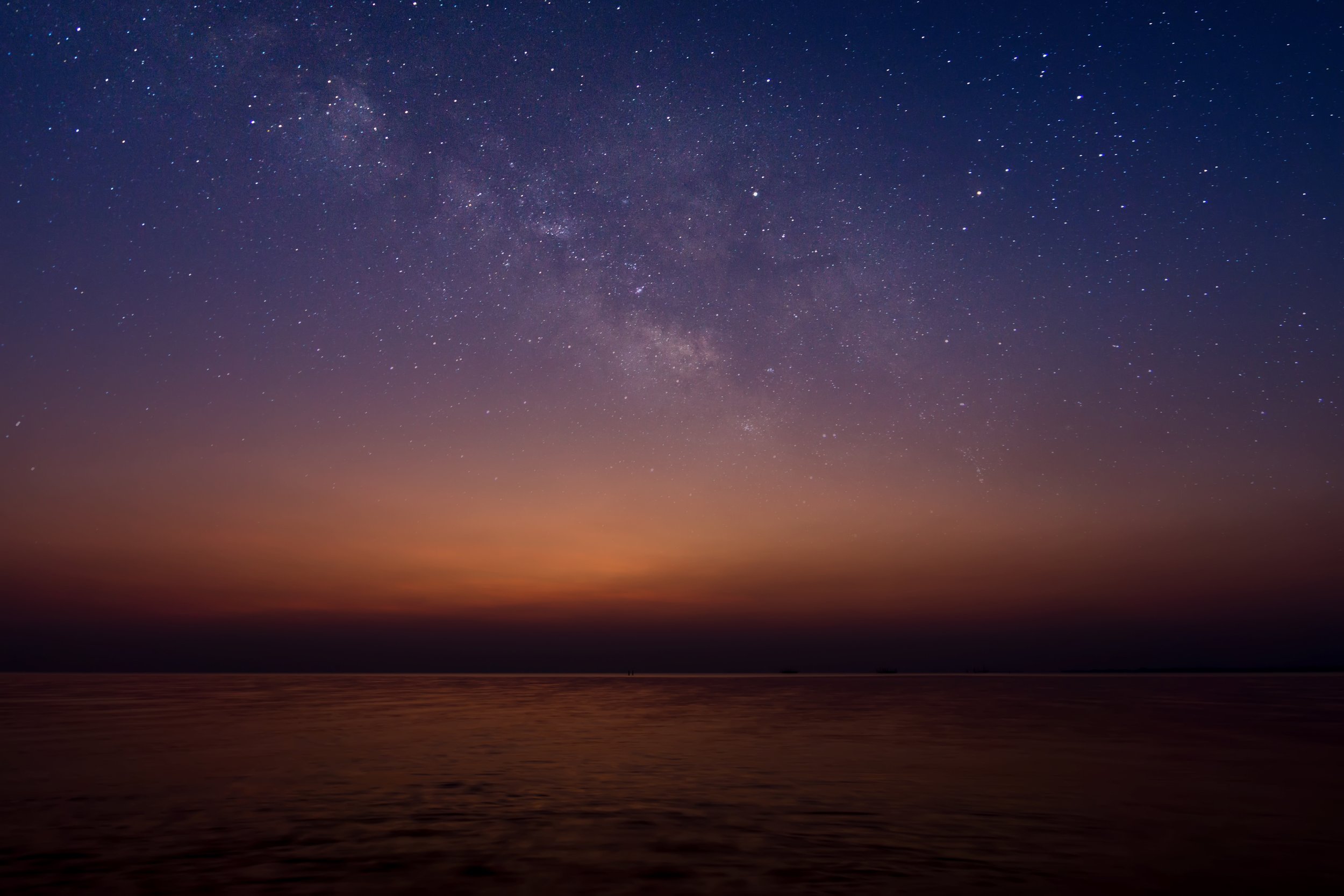
Continue the journey in The Otherworld on September 19, 2023
Until then, explore the Orca’s world with the bonus aesthetic board below







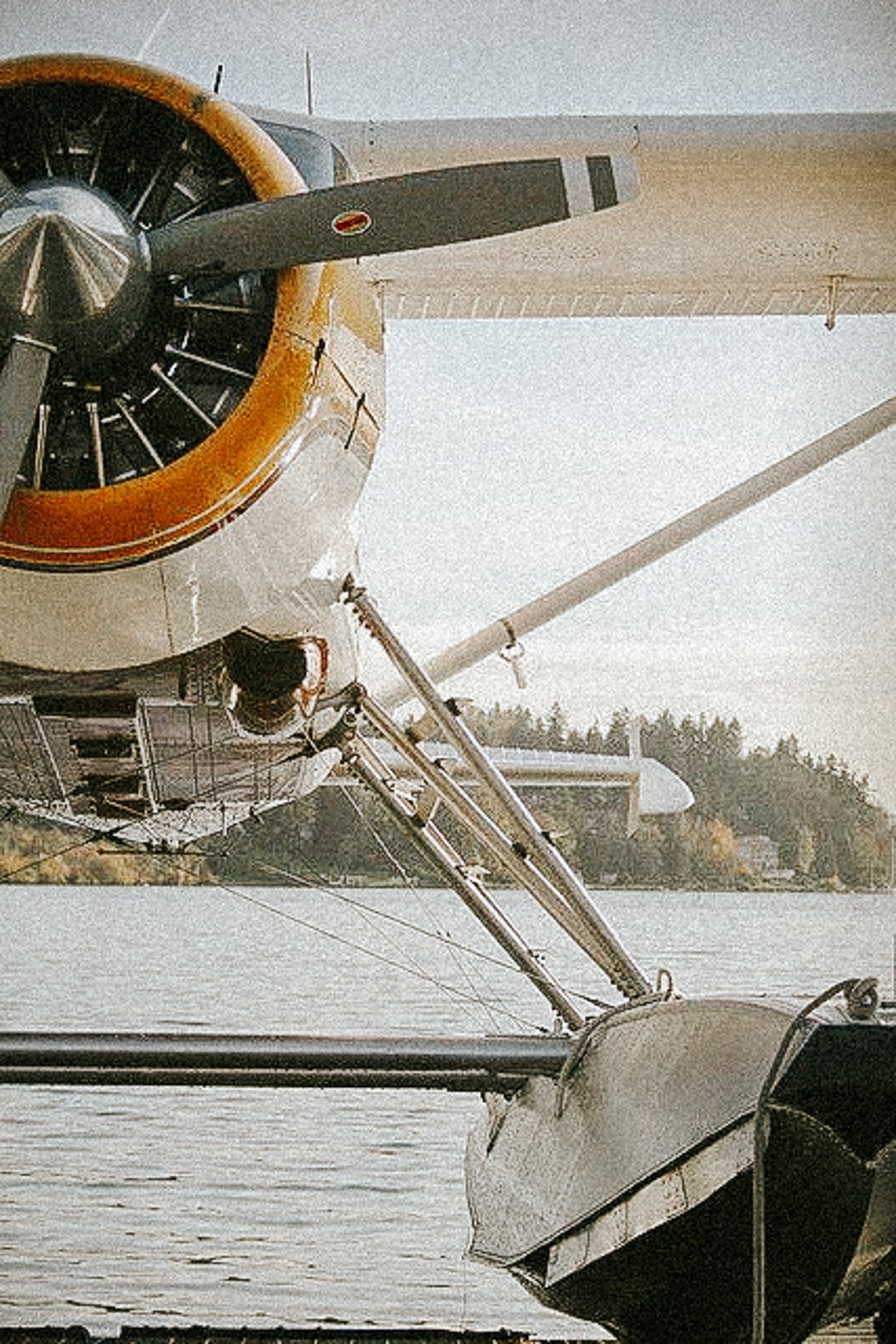


![[11] Sin __ Minsung.jpg](https://images.squarespace-cdn.com/content/v1/6484a51bbf60a1089089ca1b/598230e2-0309-4659-986b-3796189c3d7e/%5B11%5D+Sin+__+Minsung.jpg)












